The bus to Mexico City was a quick six hours. Arid mountain scrubland passed outside the window. I dozed on and off.I was 80 days into my trip, and the constant travel and planning had caught up with me long before. Travel isn’t as much a vacation as it is a job you take on, for which you are not paid. There was only one way to get back, and that was to keep going. This isn’t a complaint. But when people think about leaving their jobs and running away, I’m not sure they realize how much drudgery is involved, and boredom.
Figuring out where to stay, how to get from point A to point B, often involving a change of transportation at point C, and maybe another at D. What do you do at a bus station, waiting between buses for two hours, or six? What to do when you get where you’re going? Maybe it’s raining, and your hotel room is fifty square feet. Everything might be closed because you forgot what day of the week it was, or there’s a holiday you didn’t know about, because you aren’t from there.The shower in your room doesn’t work. You need to find an ATM. Your clothes smell because you haven’t washed them for a week. All the little problems of everyday life become amplified because you’re travelling, this is supposed to be fun, you’re not at work, so quit you’re complaining.
In Mexico City, I bought a ticket at the official cab stand to change bus terminals.
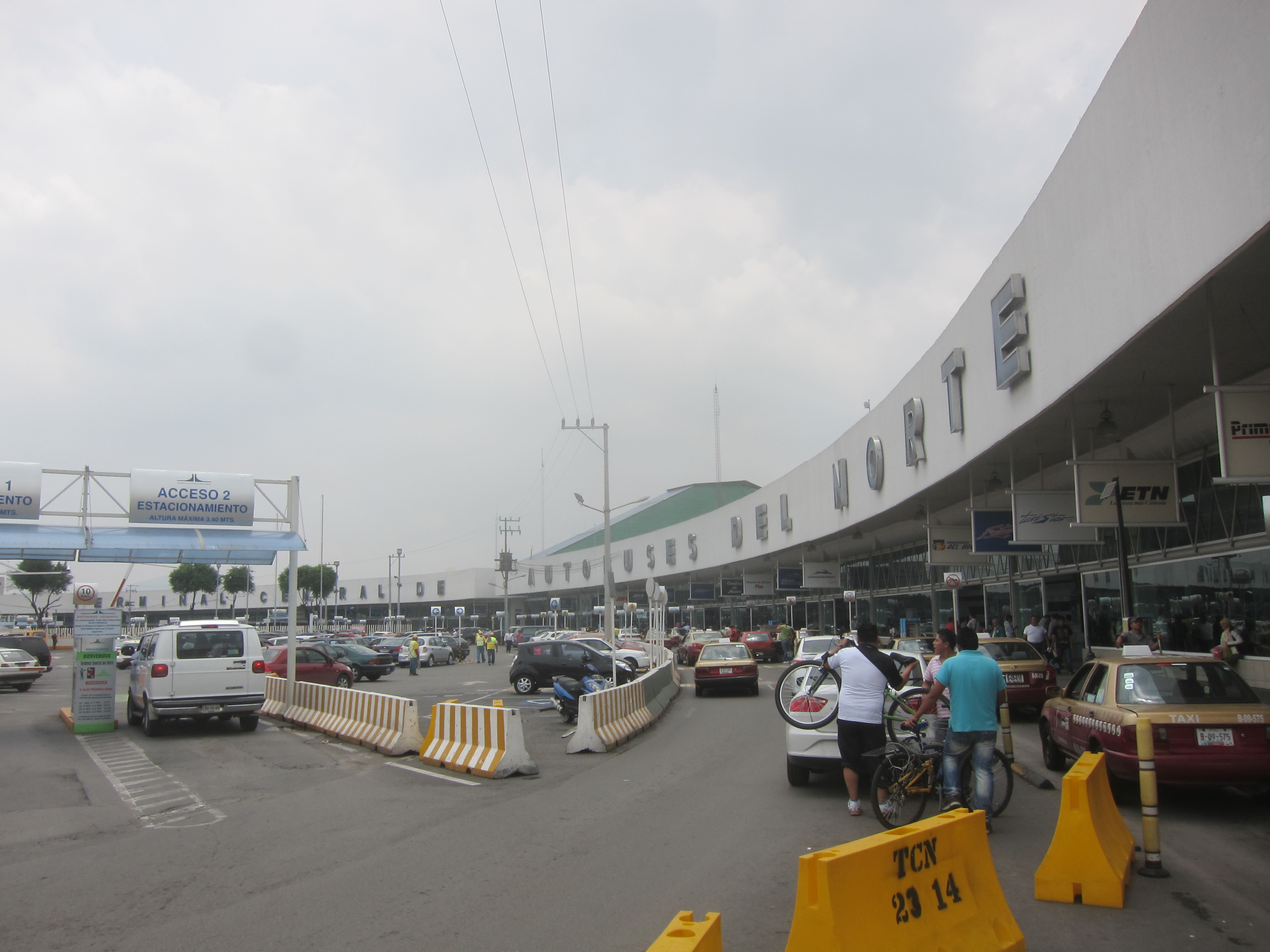
A man helped me with my bag without being asked, then stood at the door demanding a tip. I gave him one, flustered by his forwardness. I got an earlier bus than I had planned. Guanajuato was four and a half hours away, but it took just over five. We were stopped twice along the highway at military checkpoints to be searched for drugs.
I had booked my hotel two days before, thinking I would arrive after 8pm. After the taxi into the city, it was closer to 7:15pm, so I waited in a plaza for the owner to arrive and check me in. Guanajuato was a university town, so it was crowded with university kids, looking the same as their American counterparts. Youth makes me happy, and so do mountains. Guanajuato had both, so I sat content. And it wasn’t raining.
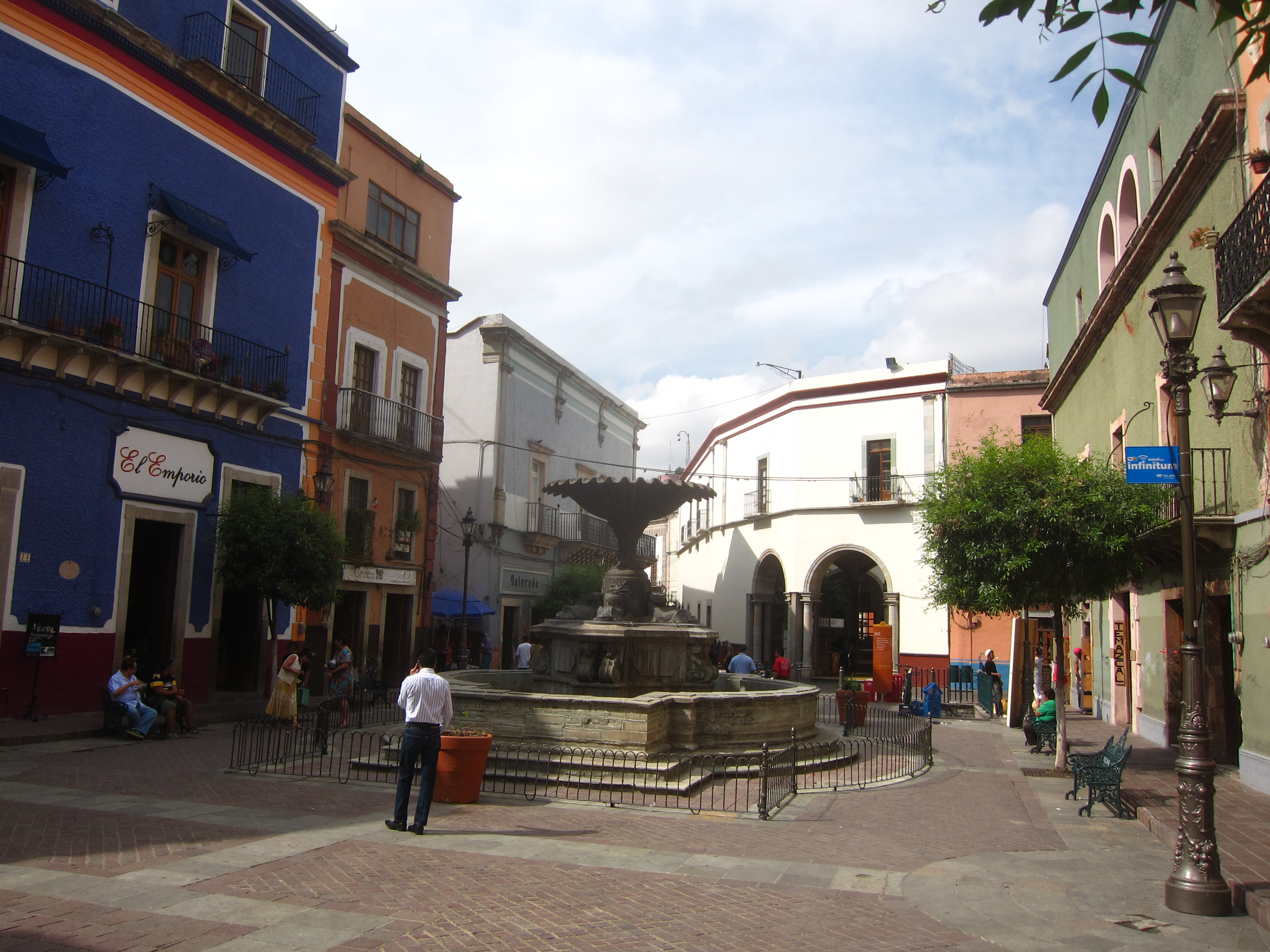
Pita showed up at 7:45pm, out of breath. She had been in the country, she said. I told her, no problem, I had made an earlier bus and was happy to wait.
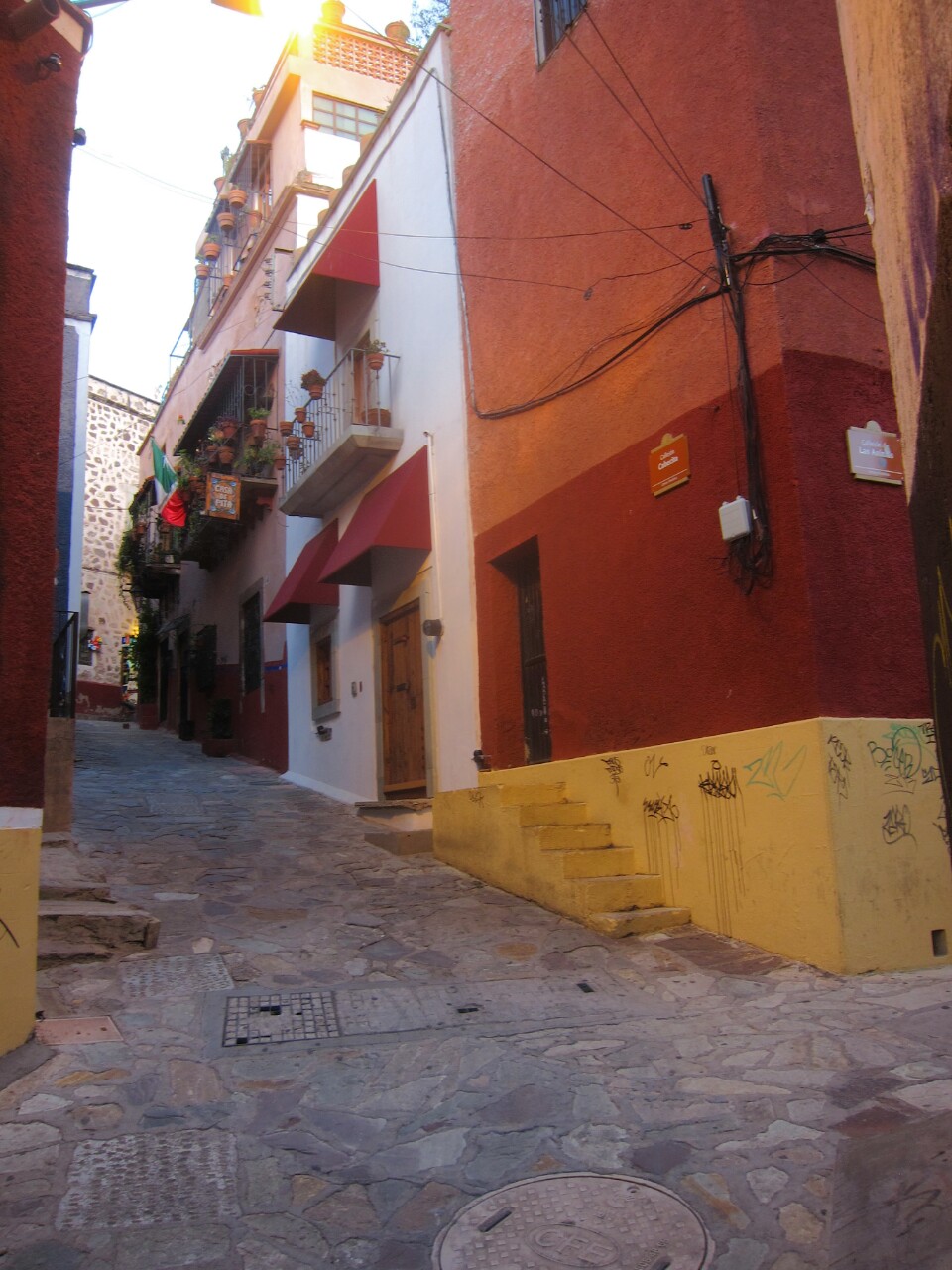
Guanajuato looked like a postcard. Colorful houses ran up and down the steep mountainsides.

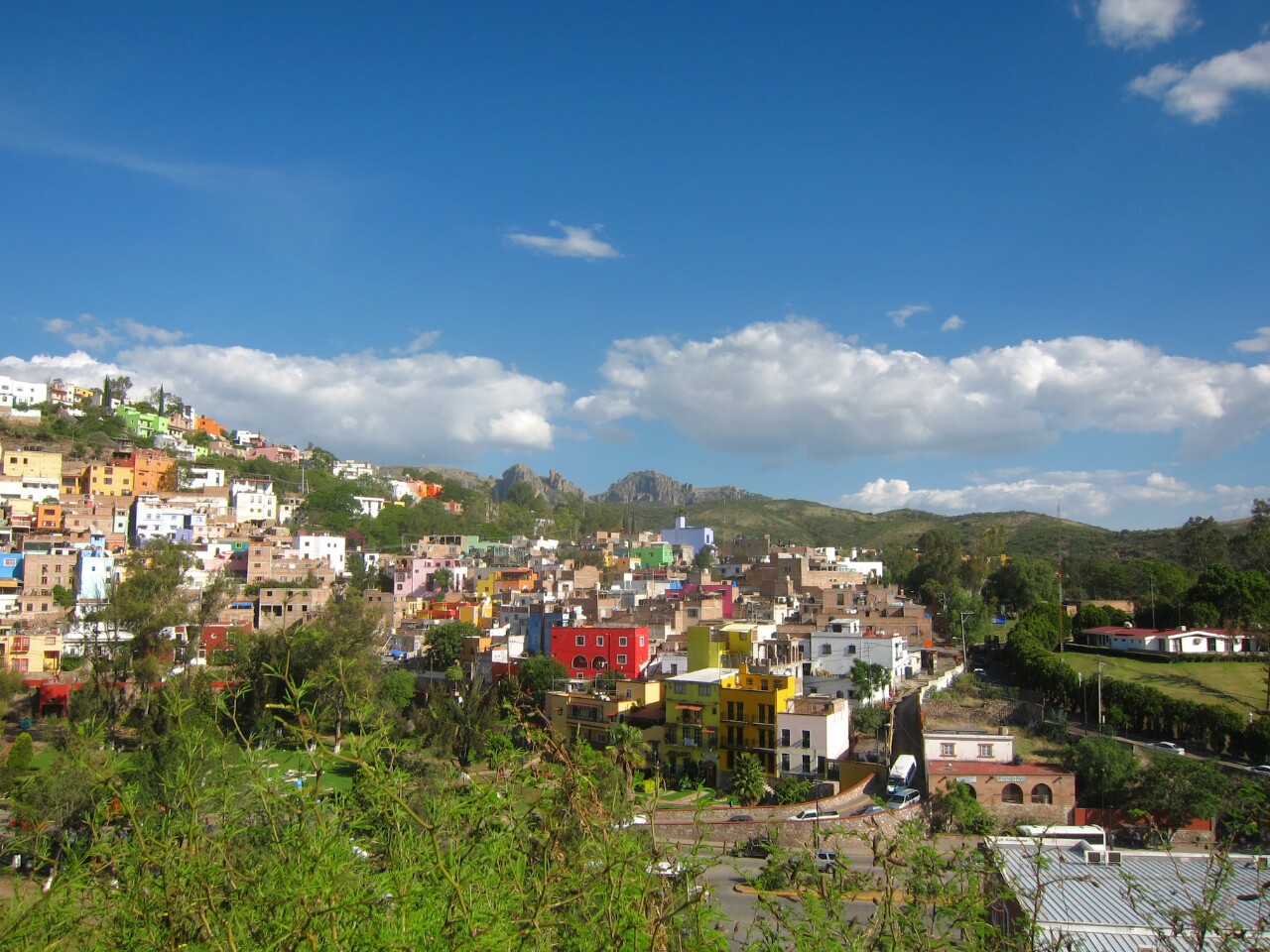
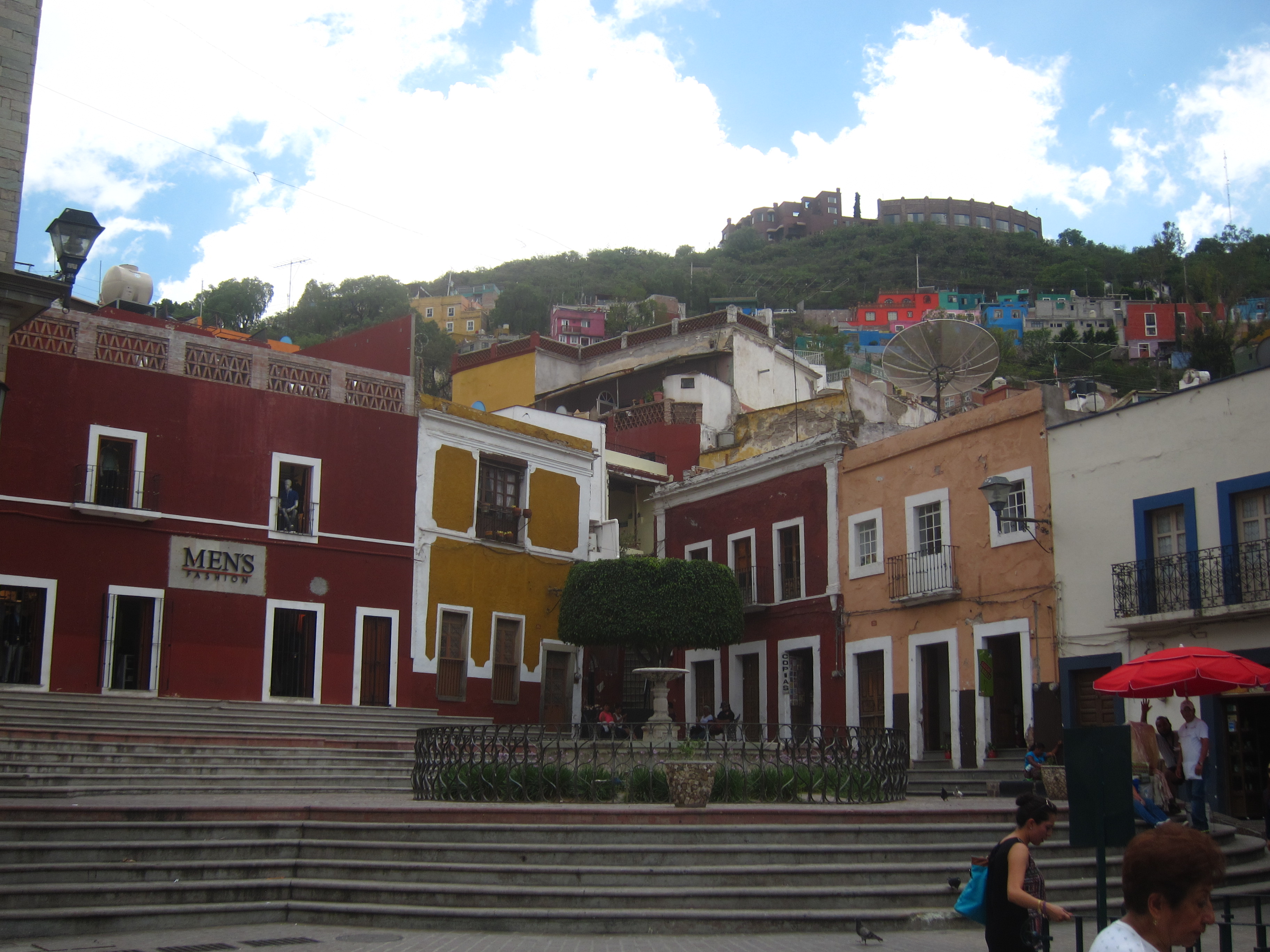
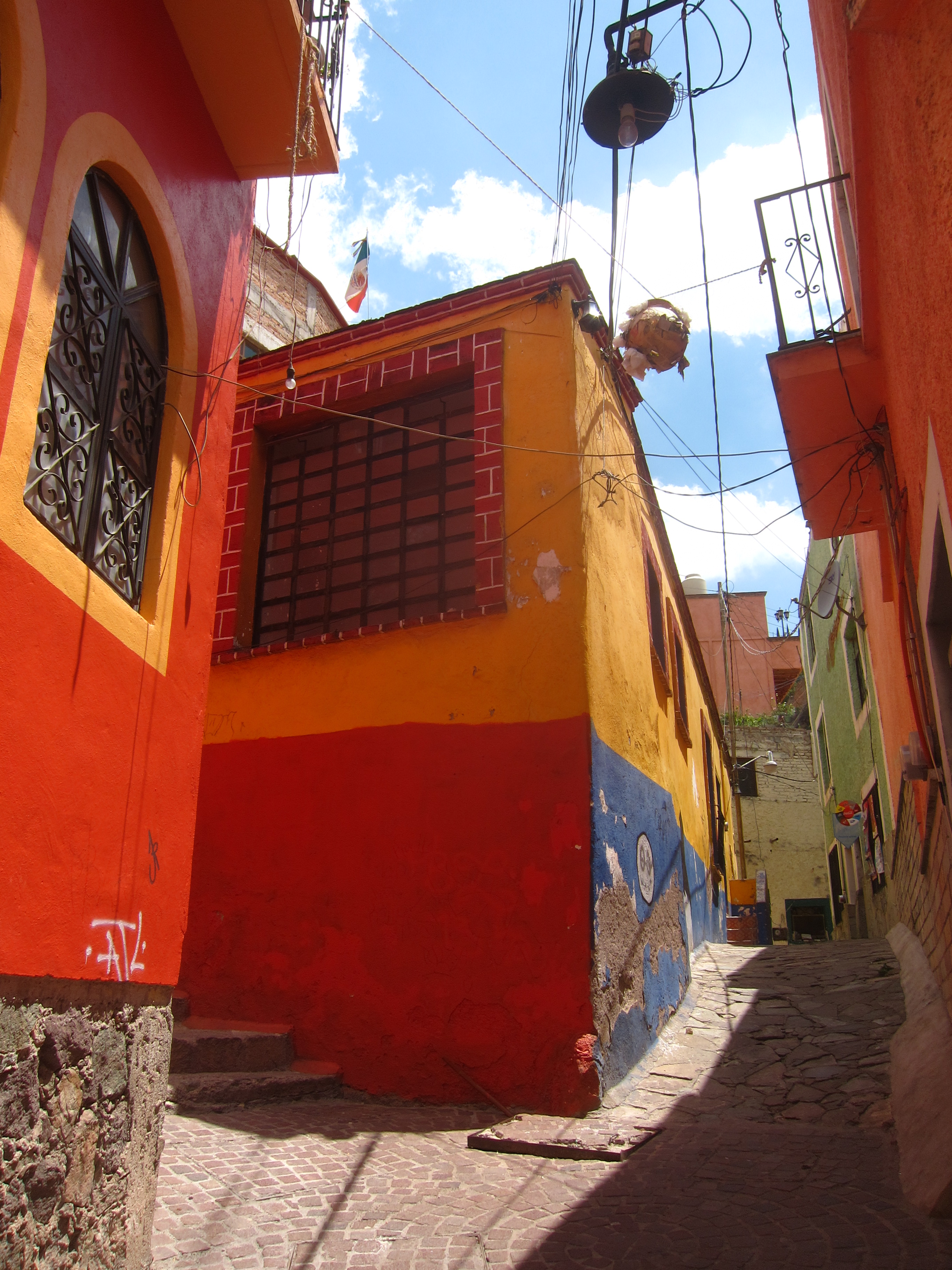
The streets twisted and turned.
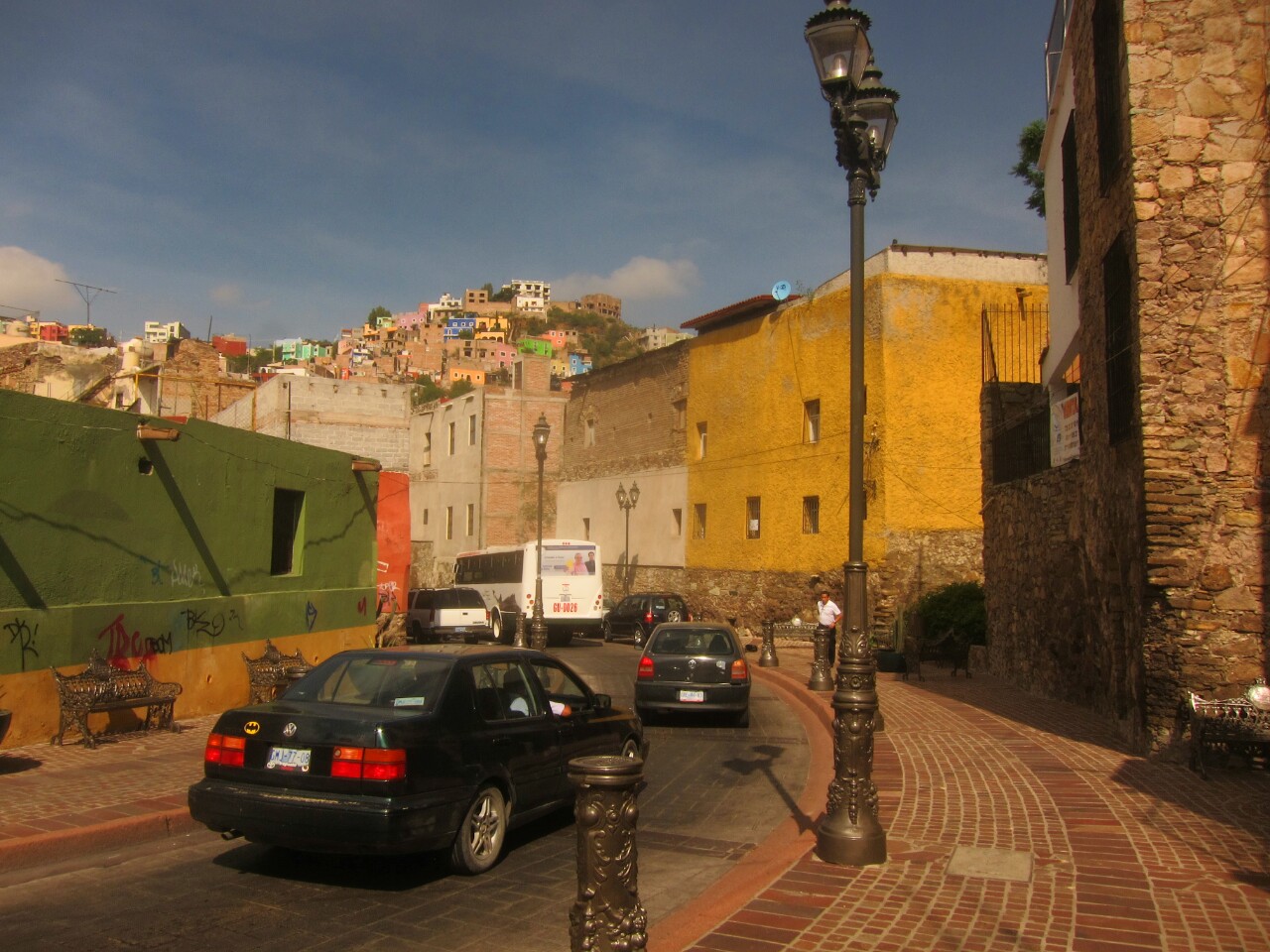
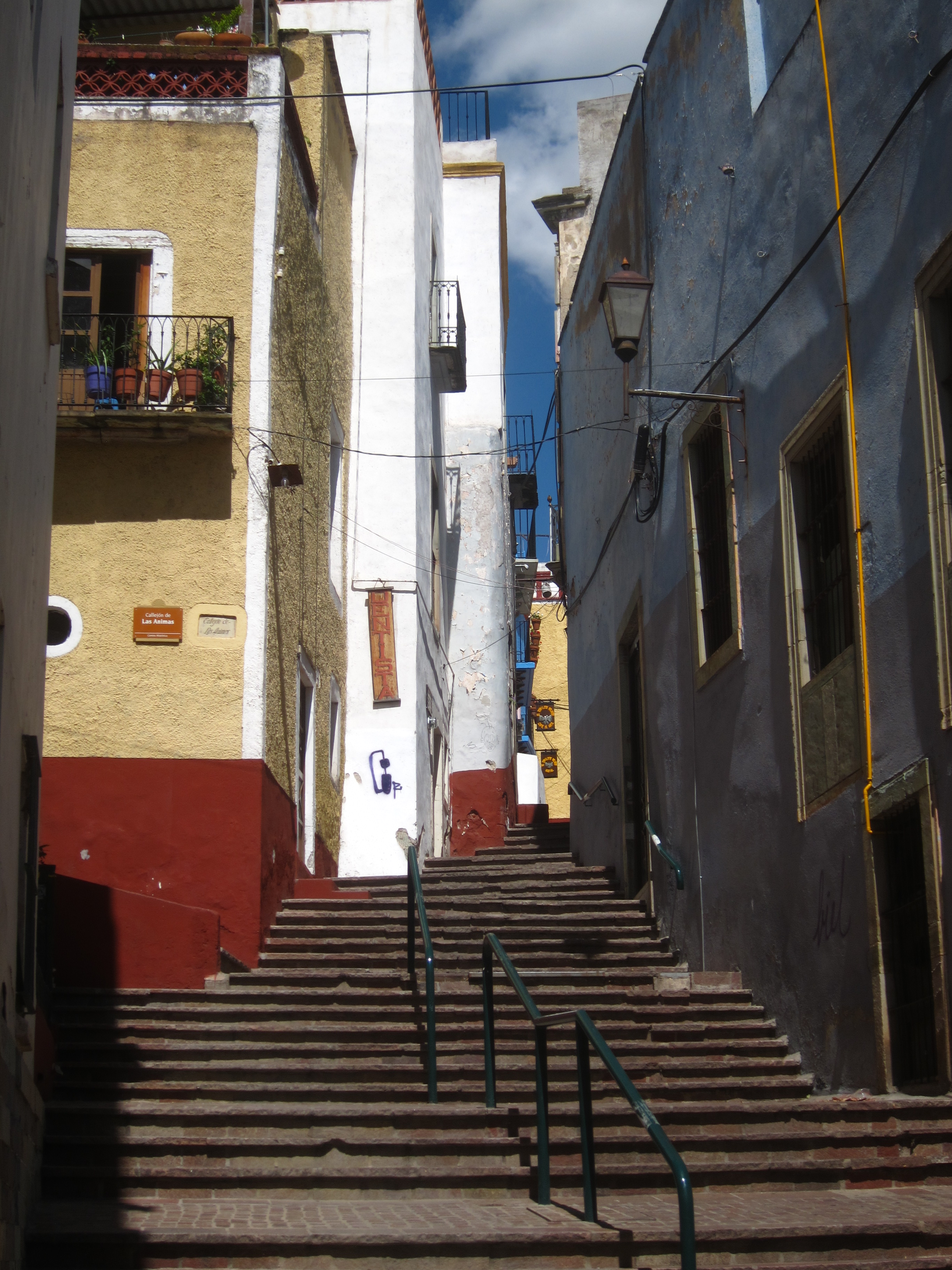
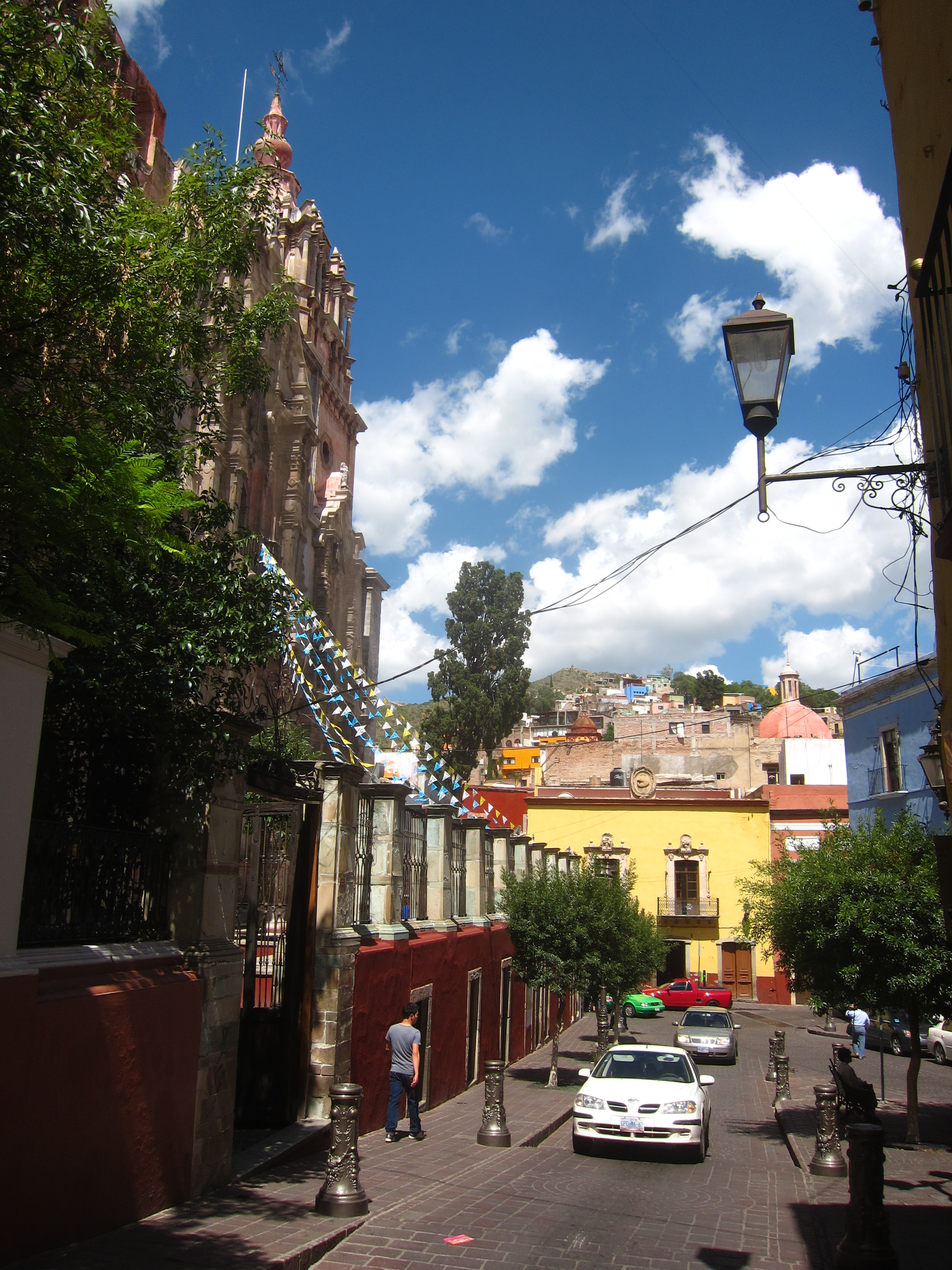
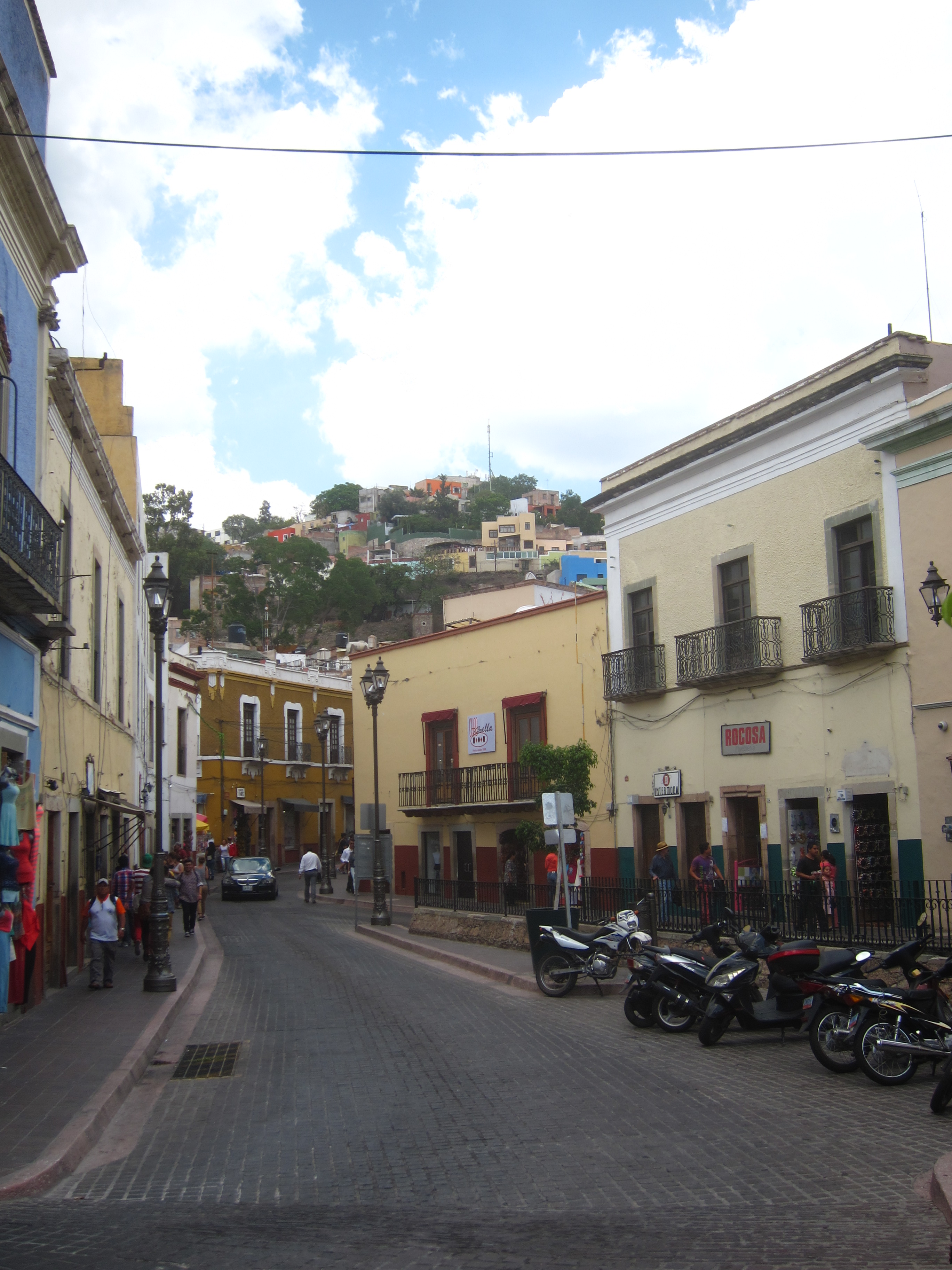

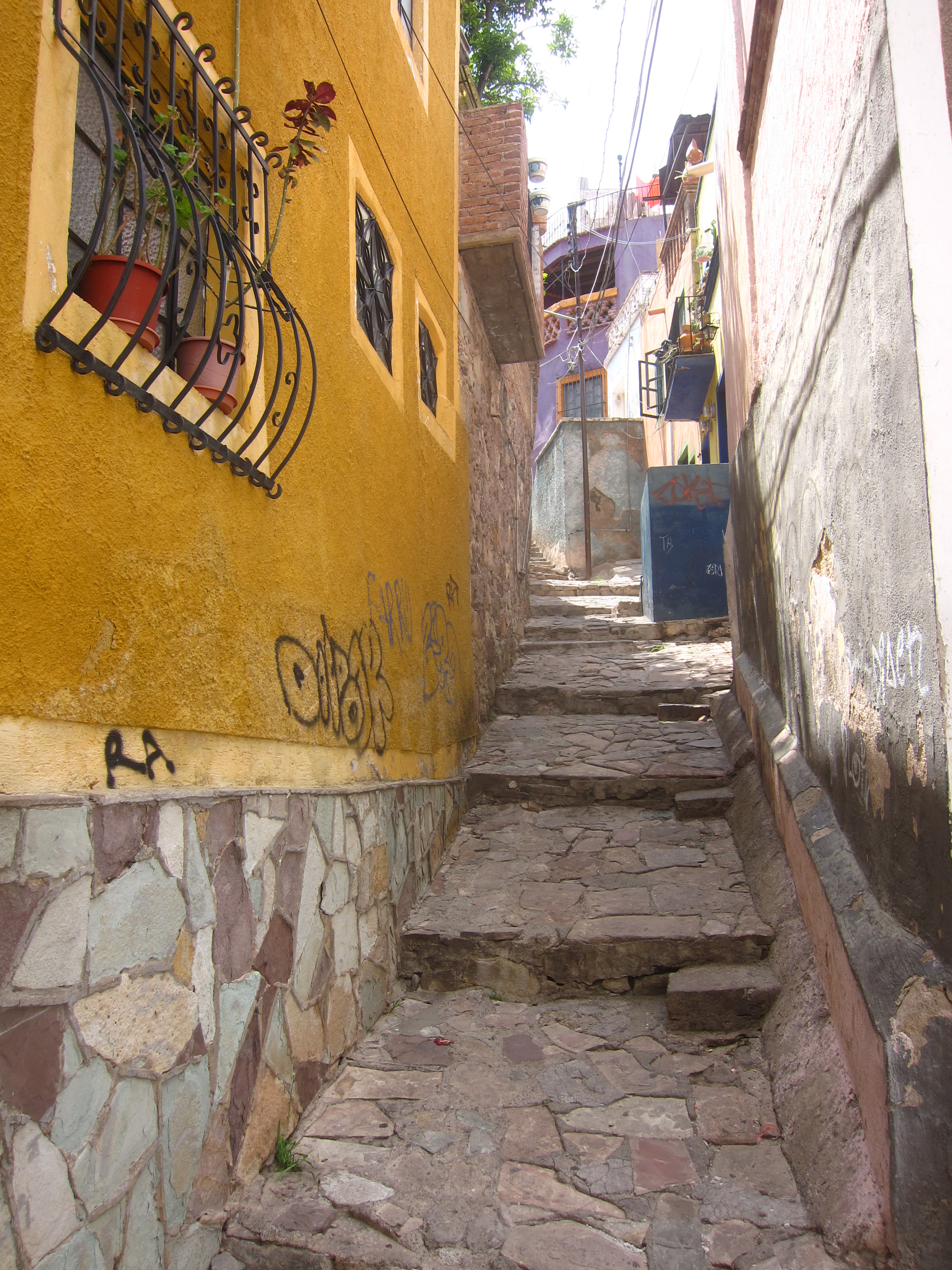
It was hard to get oriented, and I often ended up back where I started, without meaning to. Guanajuato had been a silver mining city, part of the silver triangle with San Miguel de Allende and Zacatecas, and had somehow managed to maintain it’s opulence long after the source of it’s wealth dried up.
The Jardin de la Union felt like an outdoor living room, thickly shaded by trees, lined with benches and restaurants. At night people sat eating and others stood outside and watched the NBA Finals on the bar tv.
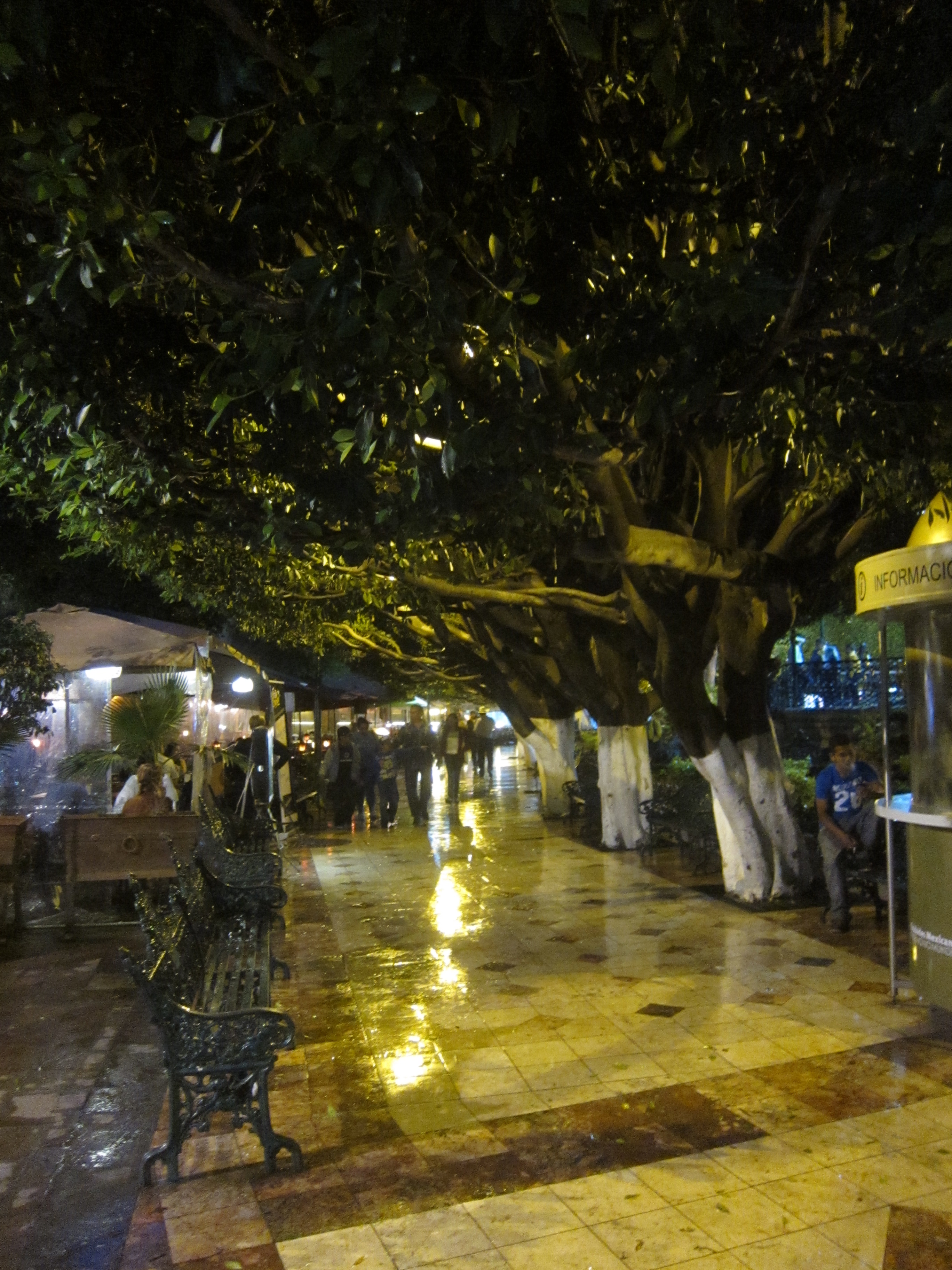
Men dressed like minstrels gathered people in front of the Teatro Juarez for Callejoneadas, moving performances that wandered the narrow alleys(callejones), playing music and telling legends.
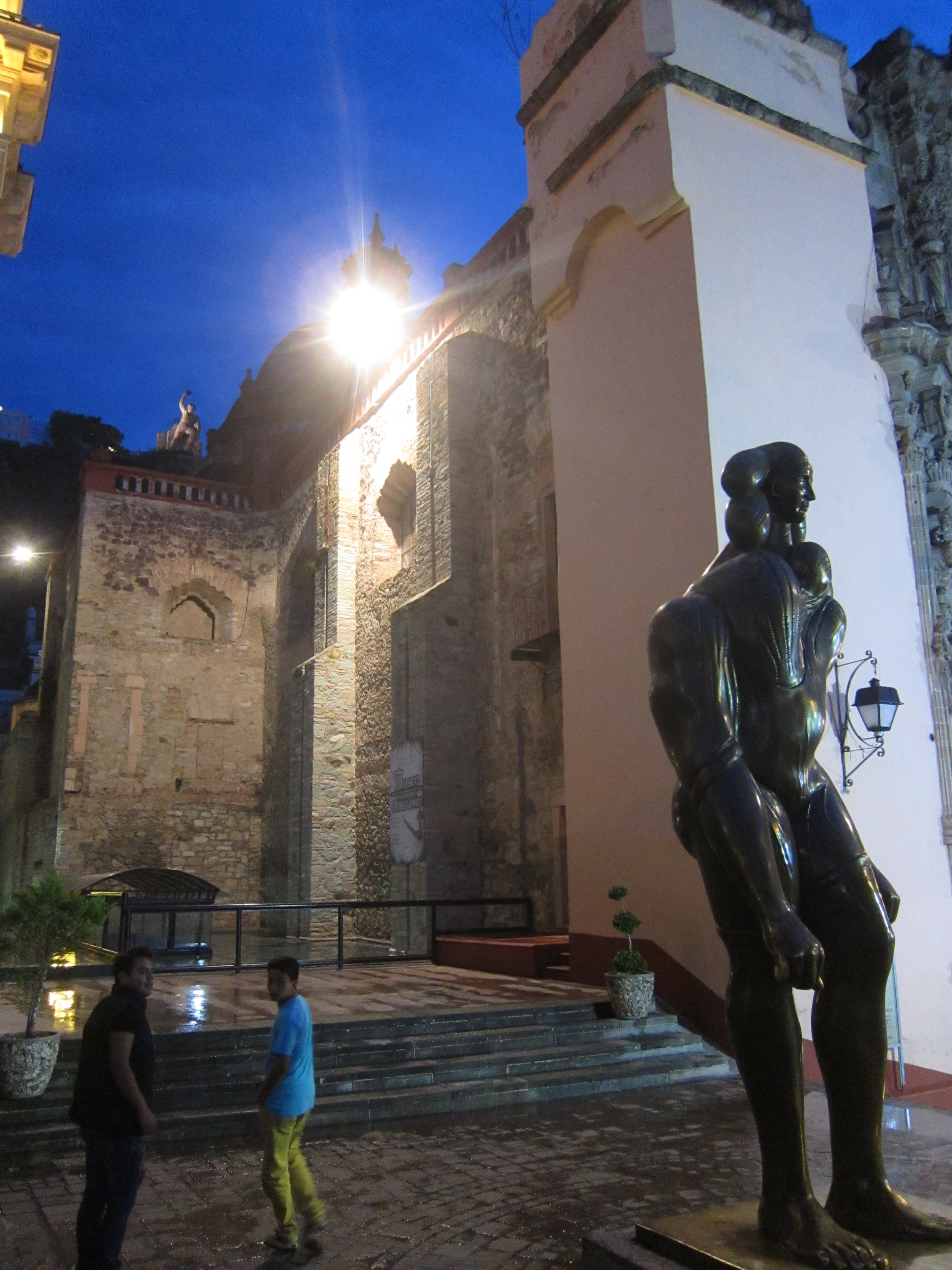
Oaxaca and San Cristobal were certainly not down at the heel places, but Guanajuato had no indigenous Mayans or Zapotecs, sitting quietly in traditional dress on street corners or in the squares, selling sweet breads and trinkets to survive. People walked around without being confronted by the ugly reality of poverty. Every October, Guanajuato has a festival dedicated to Cervantes, and statues of characters from Don Quixote stood on street corners. Without meaning this as a backhanded comliment to Mexico, there were times when I had to remind myself I wasn’t in Spain.
At breakfast I sat with Pita and the hotel’s other guest, Chris, a Phd student from Cal-Berkeley, here for a months to study Mexican elections. We talked of our travels. Pita spoke some English, but I got by okay listening and understanding in Spanish, if not being able to add much to the converstation. There was a roof terrace with a 360 degree view of the city, where I had lunch.

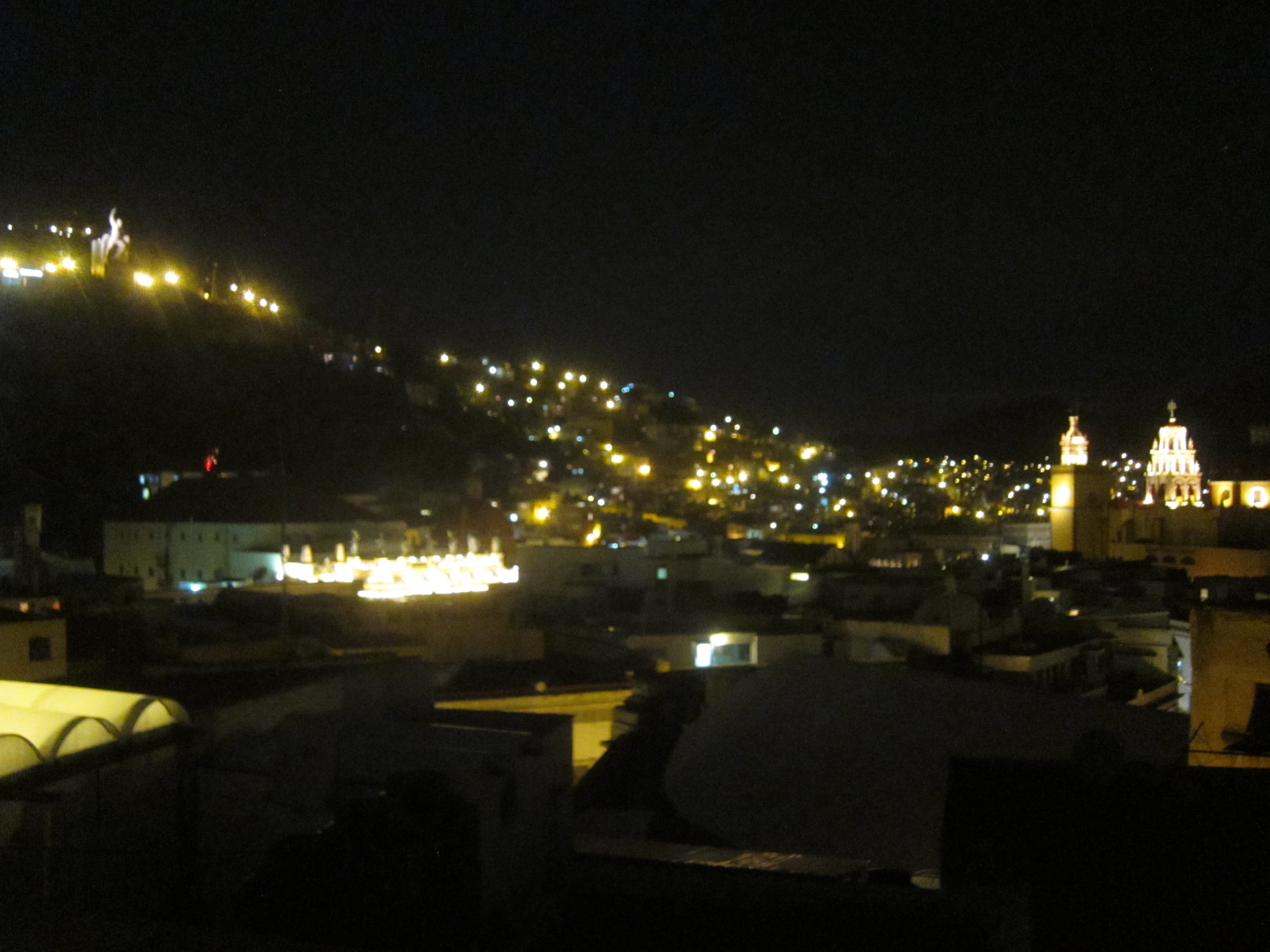
I was getting sick of eating in restaurants. I climbed up to the El Pipilo monument for another view of the city. I got lost again and again in the streets and alleyways and sat in the squares people watching.
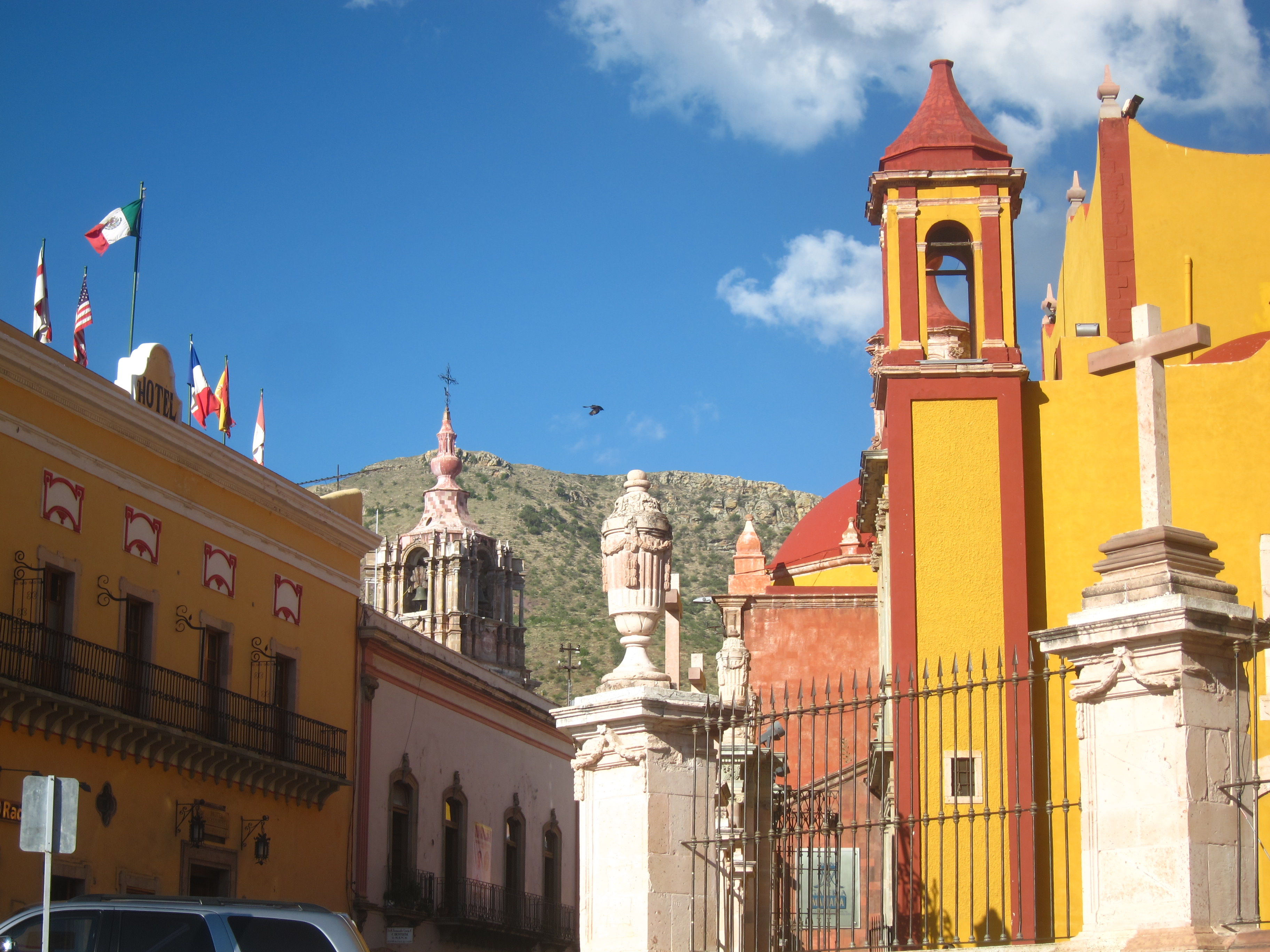
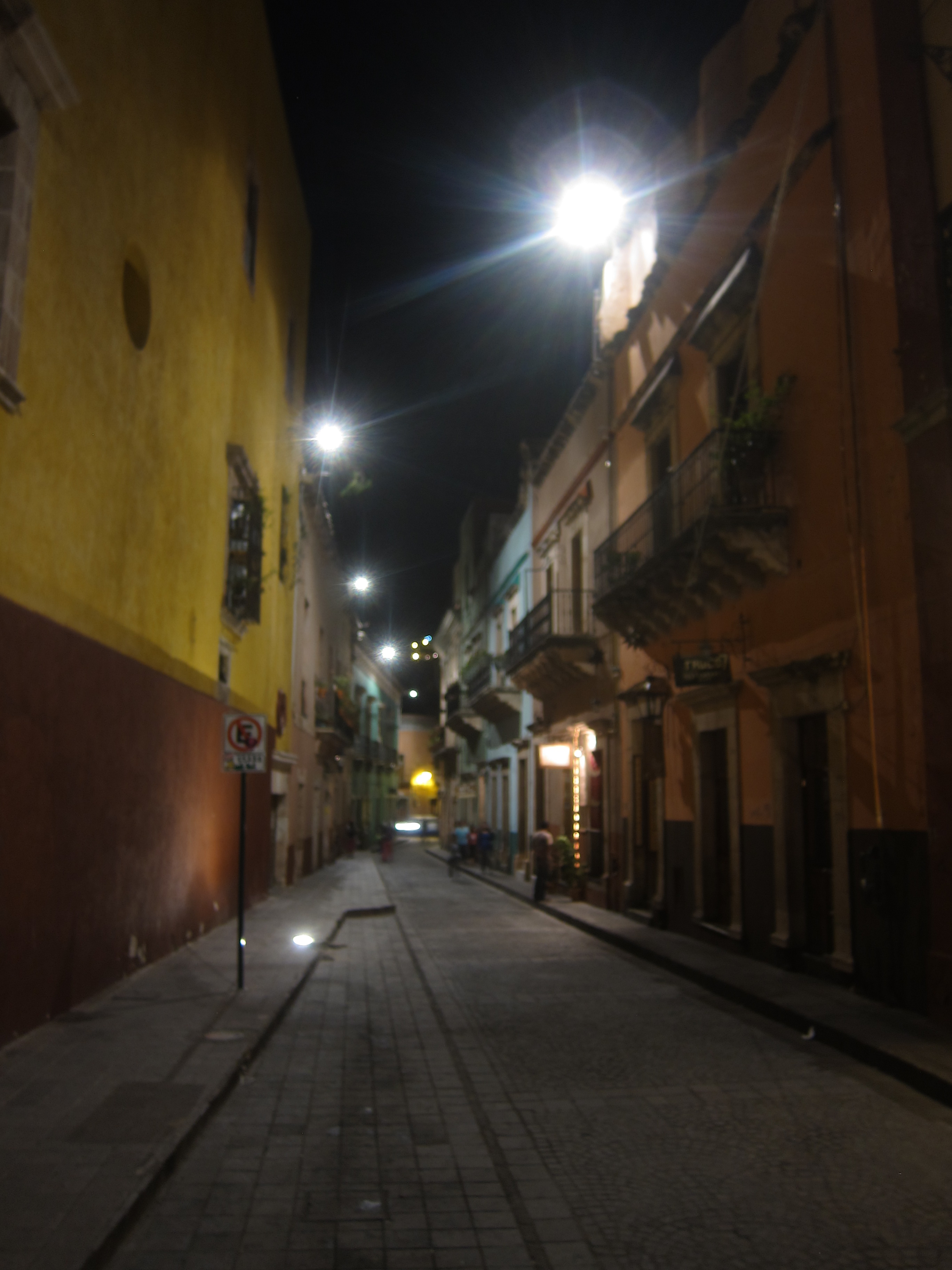
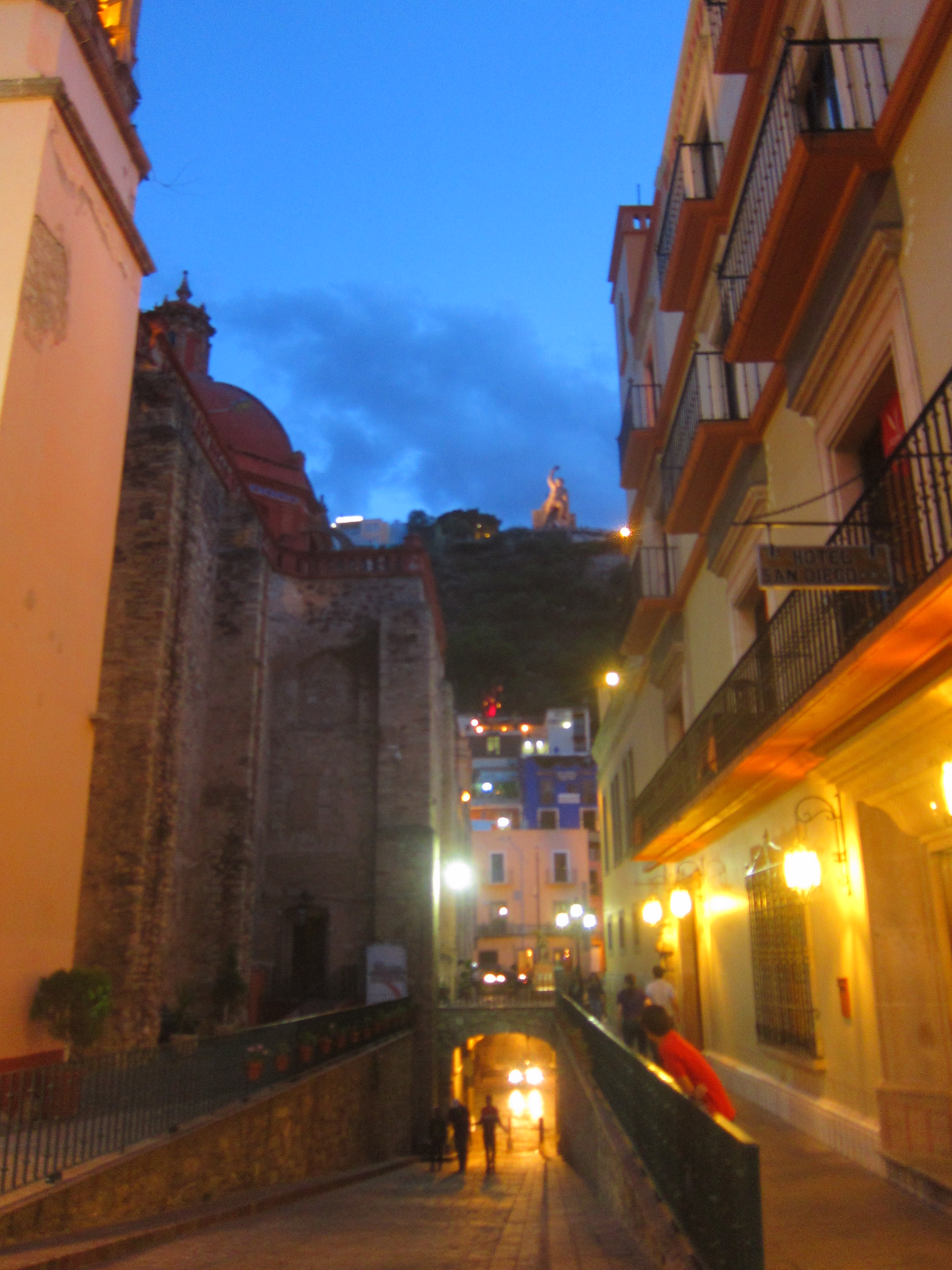
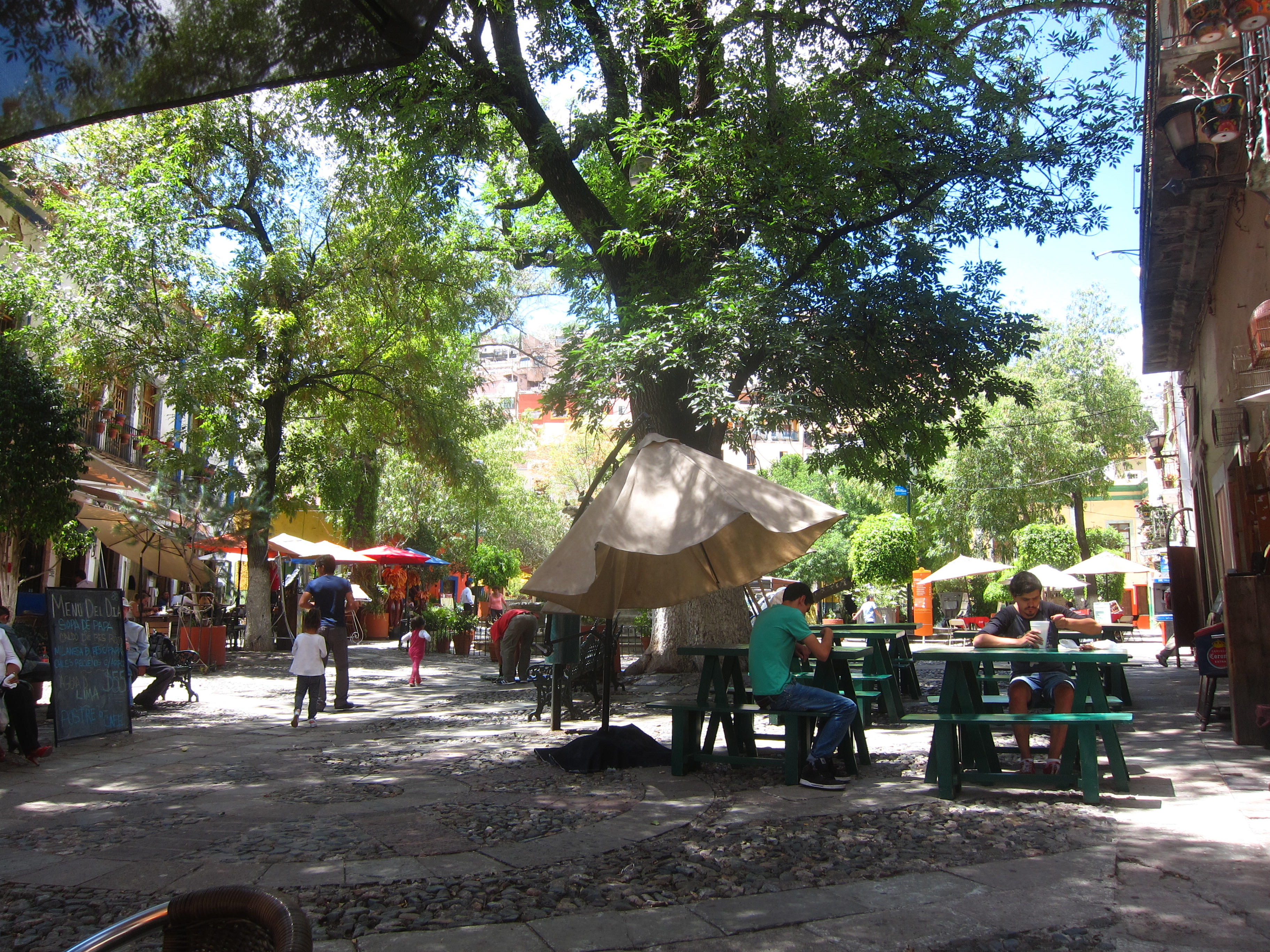
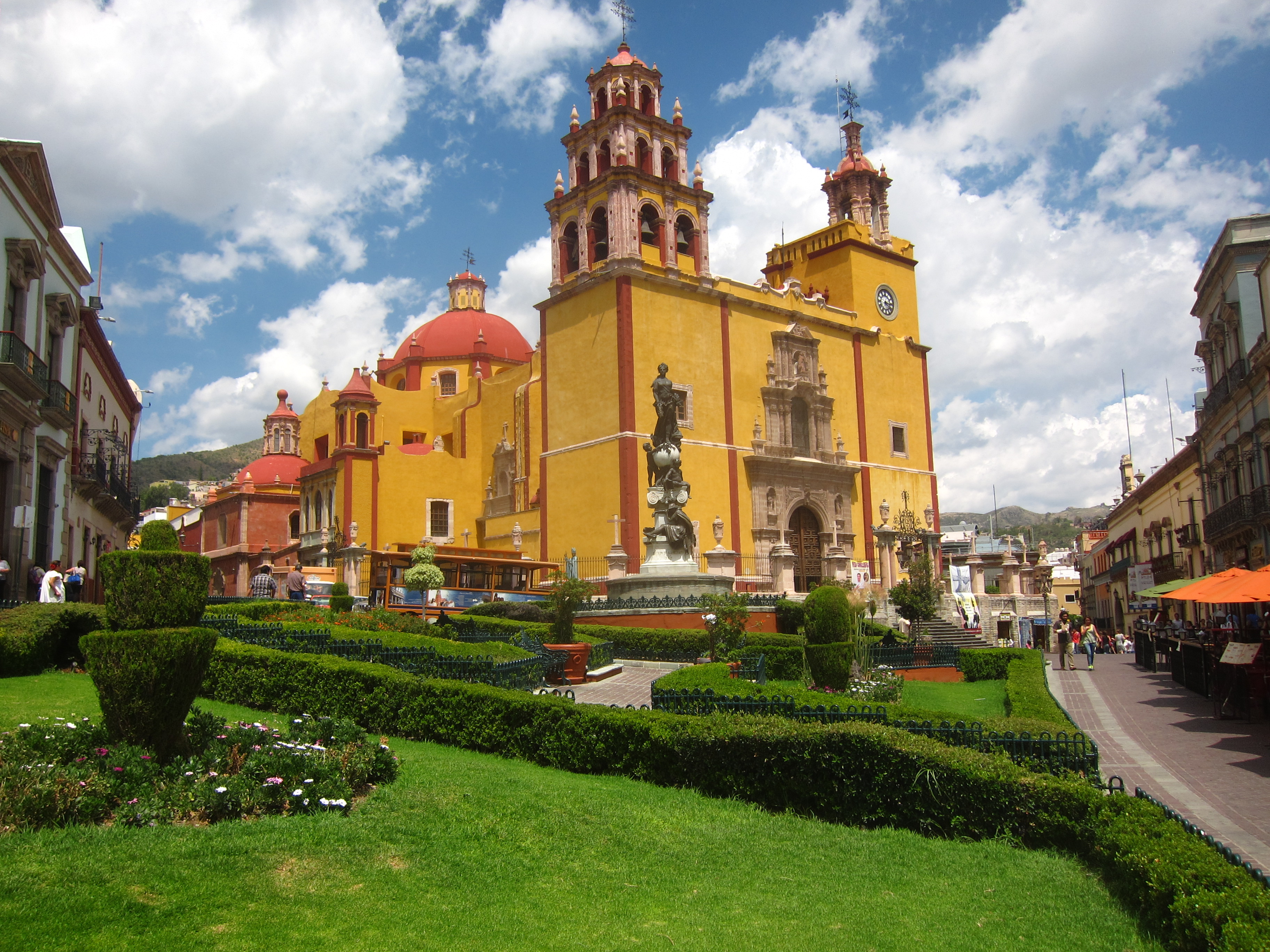
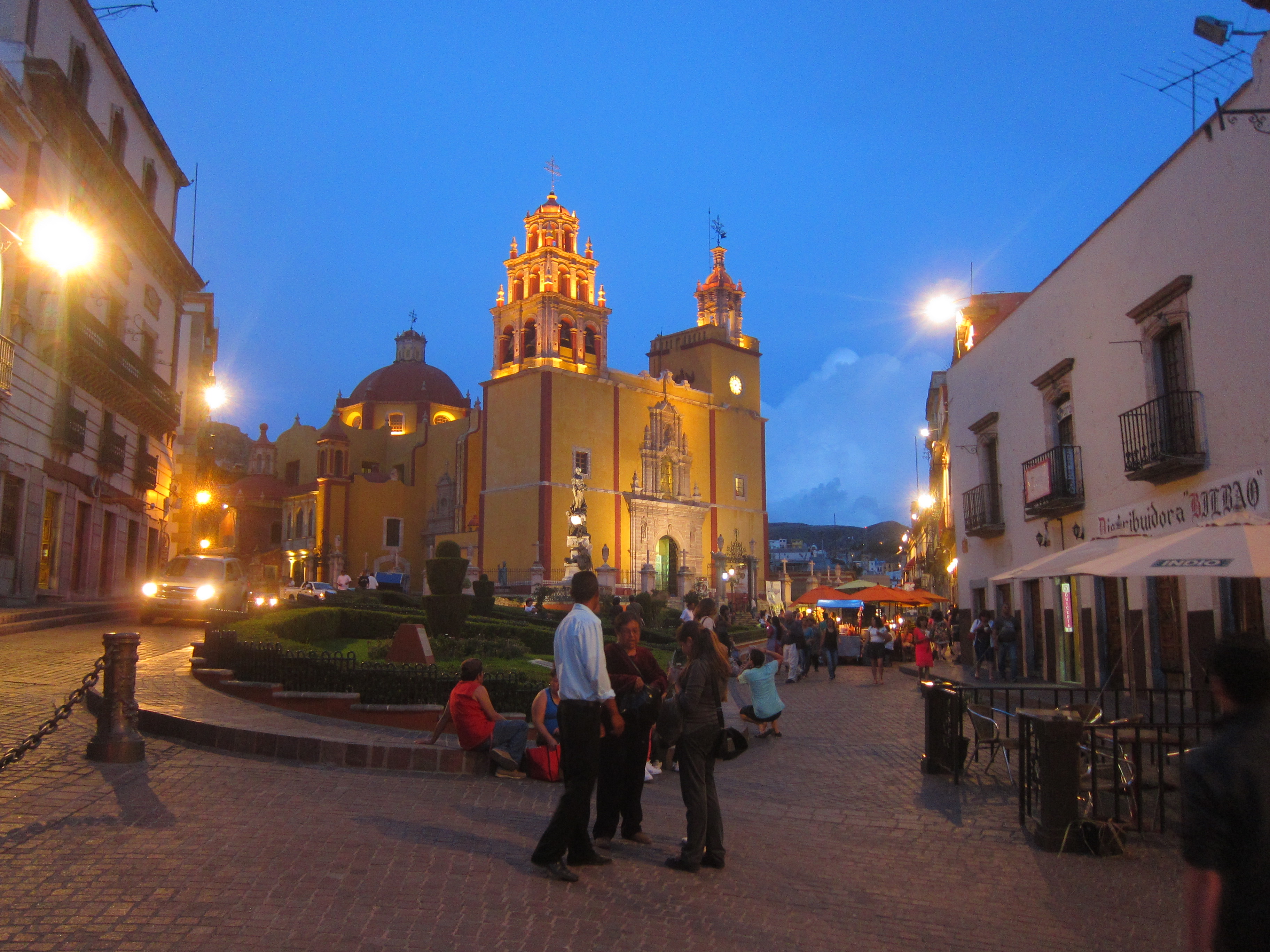
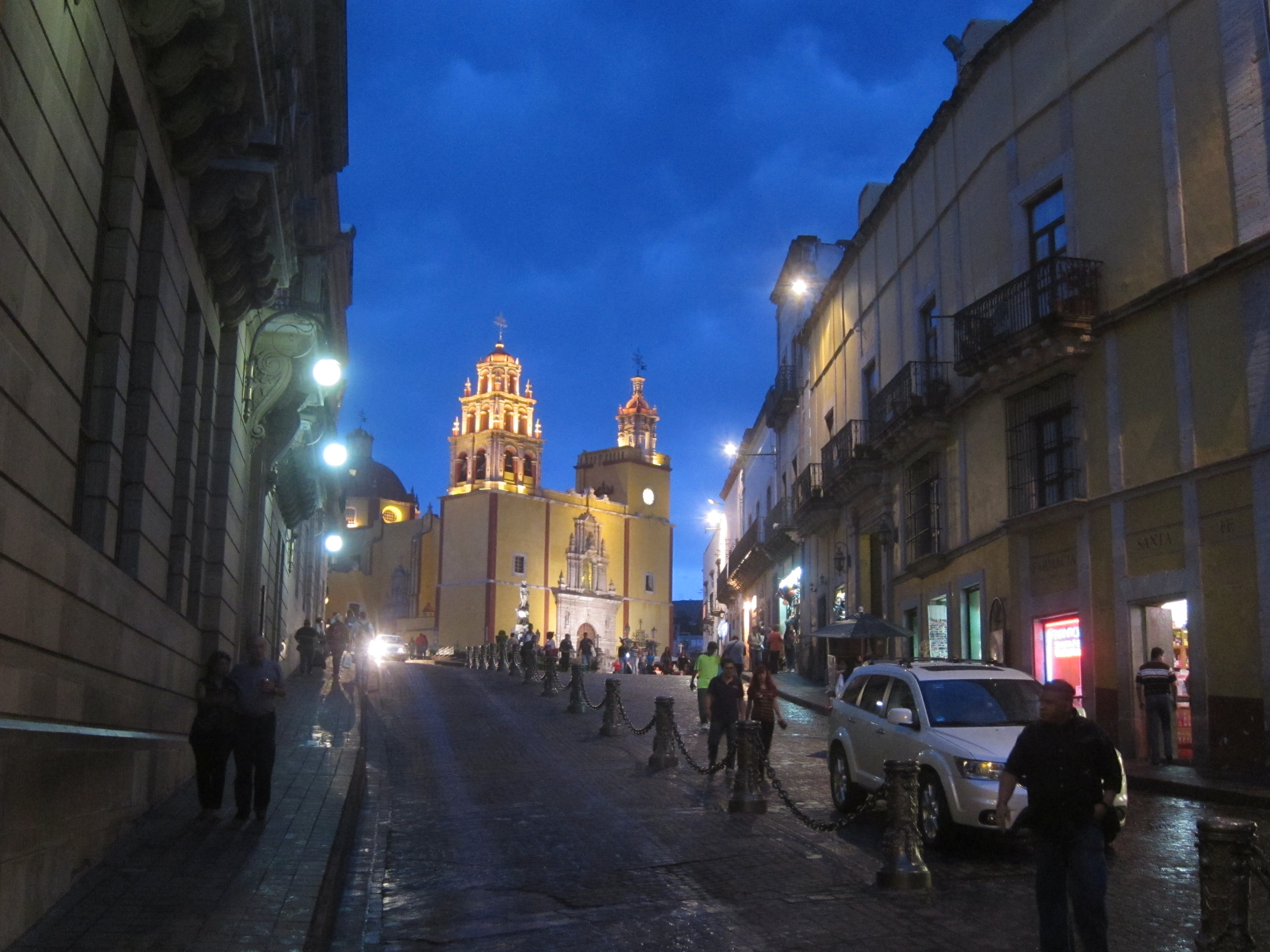
Zacatecas required a bus change in Leon, and I arrived at 6pm. A taxi from the bus station took me to my hotel, run by men Pita knew, “buen personas” she said.
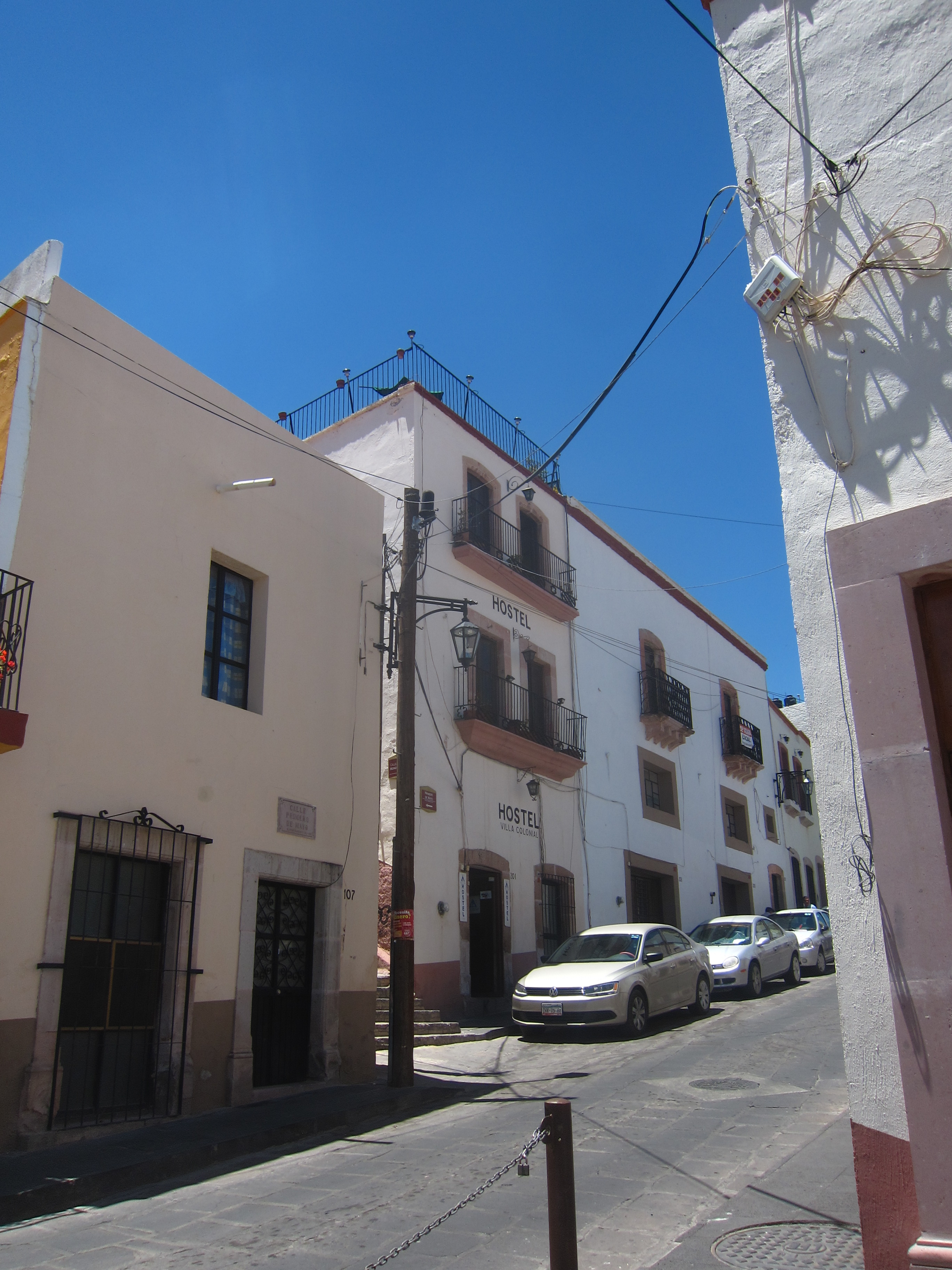
I had booked a room online, a private room with no bath, but when I arrived, I asked if they had anything else with bathroom available. They did, and when I saw the view from the juliet balcony, over the city and cathedral, I decided it was worth the extra $9 a night(from $17 to $26).
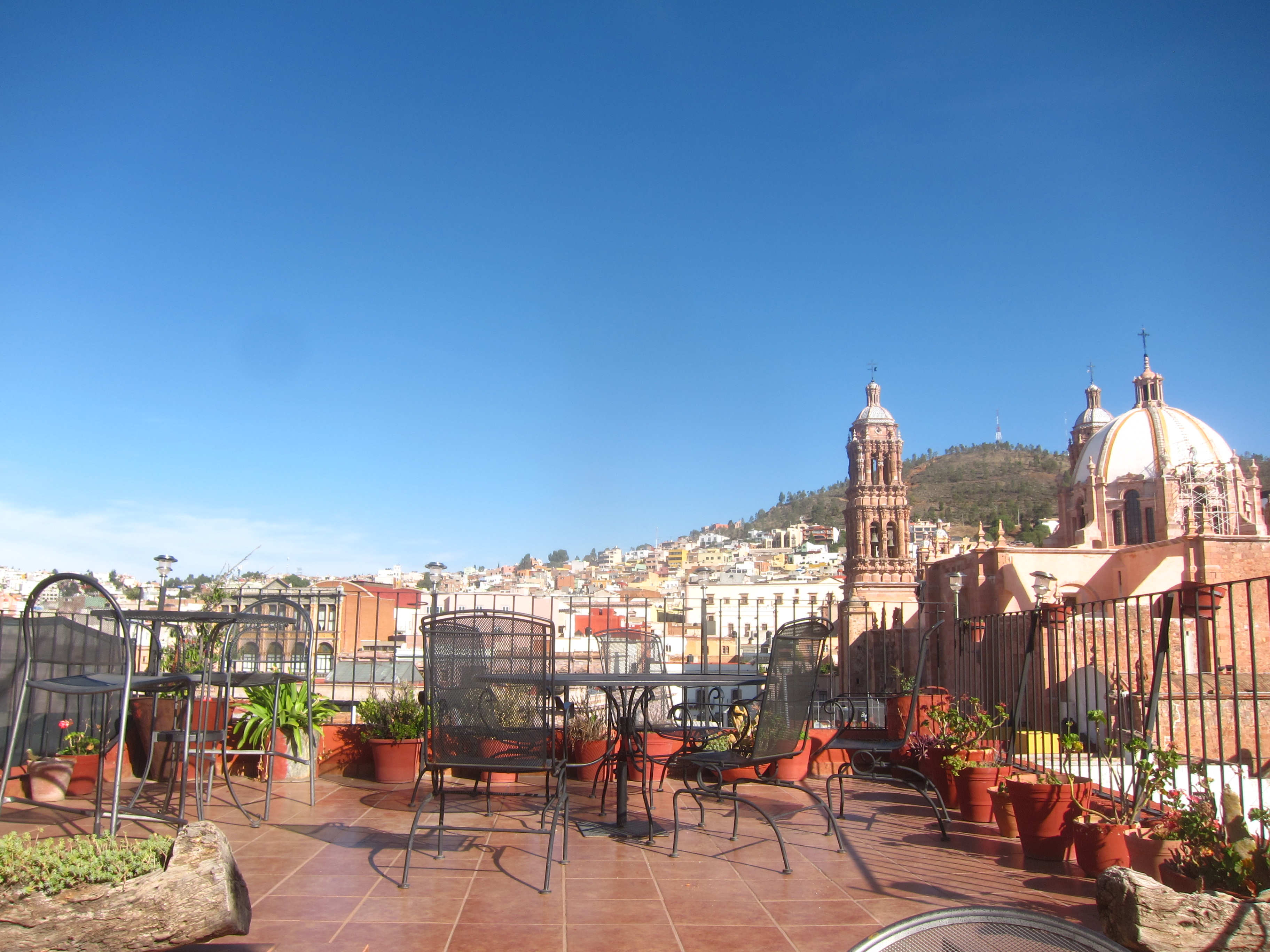
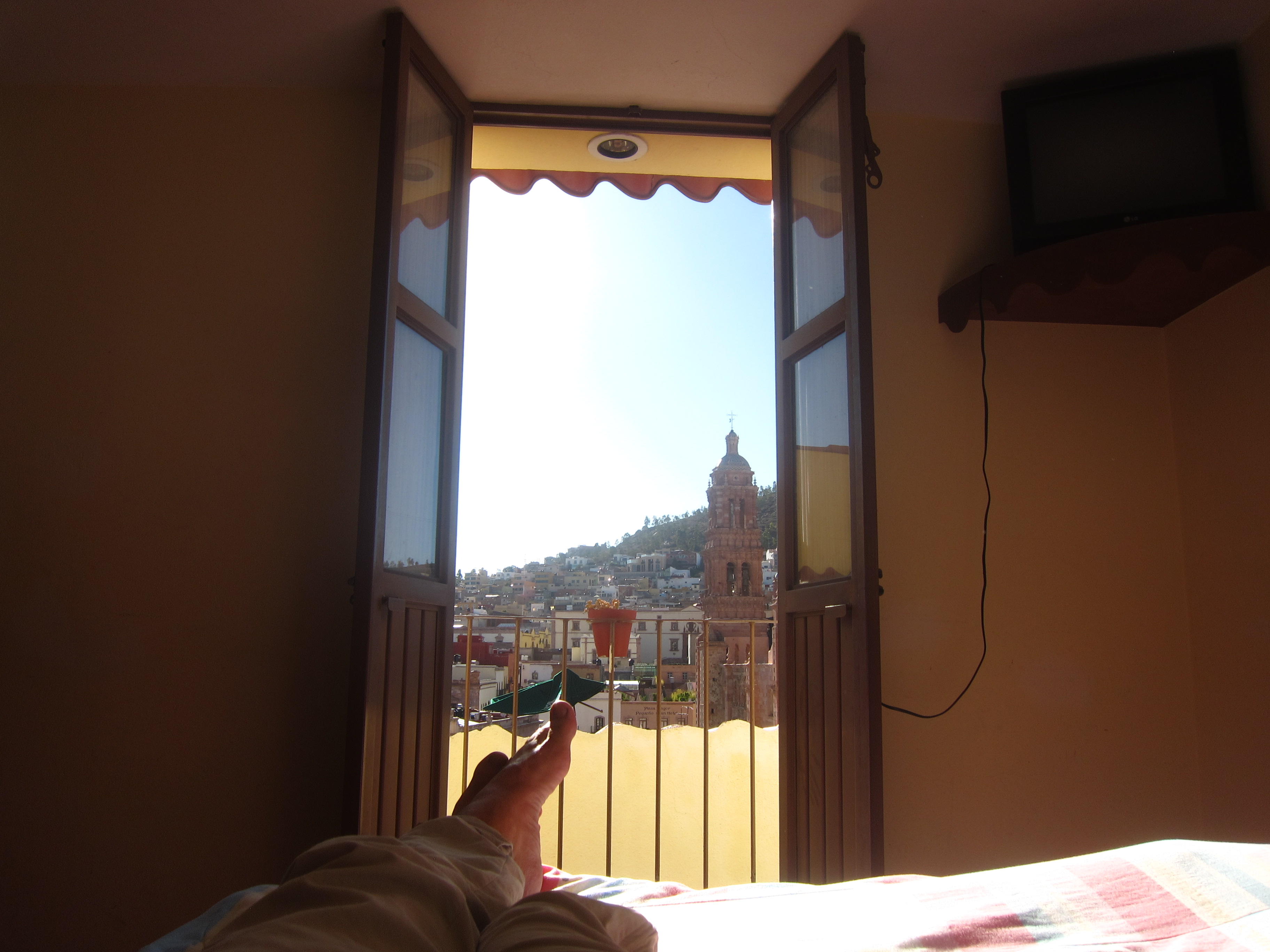
Zacatecas was grubbier than Guanajuato. Far more remote from the capital, or any other cities of consequence than Guanajuato. Instead of statues of. Don Quixote there were painted statues of Pancho Villa and his troops, who defeated a government army here in 1914 during the revolution.
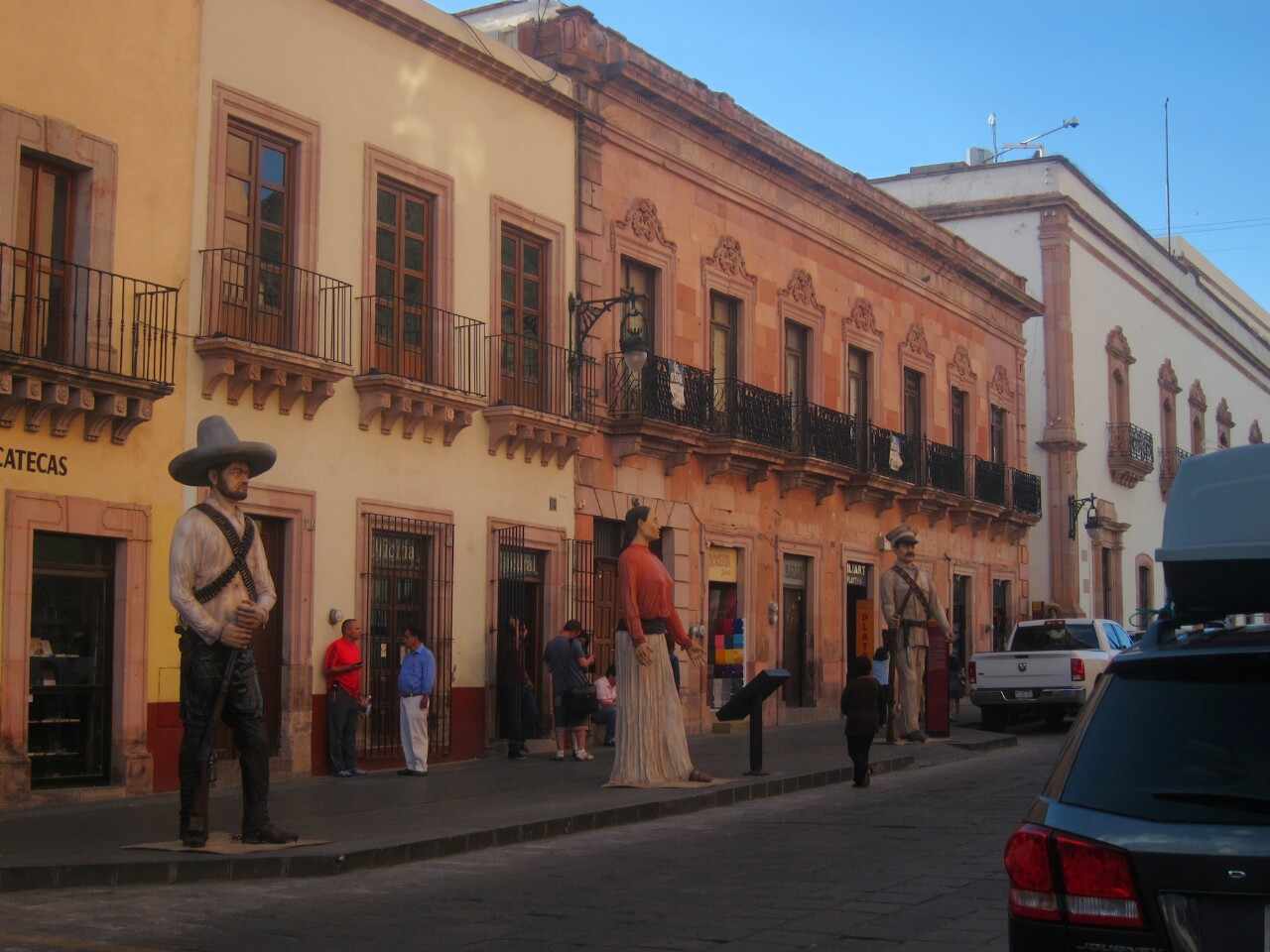
The houses were less brightly painted, and caballeros from the arid land surrounding the city walked the streets.

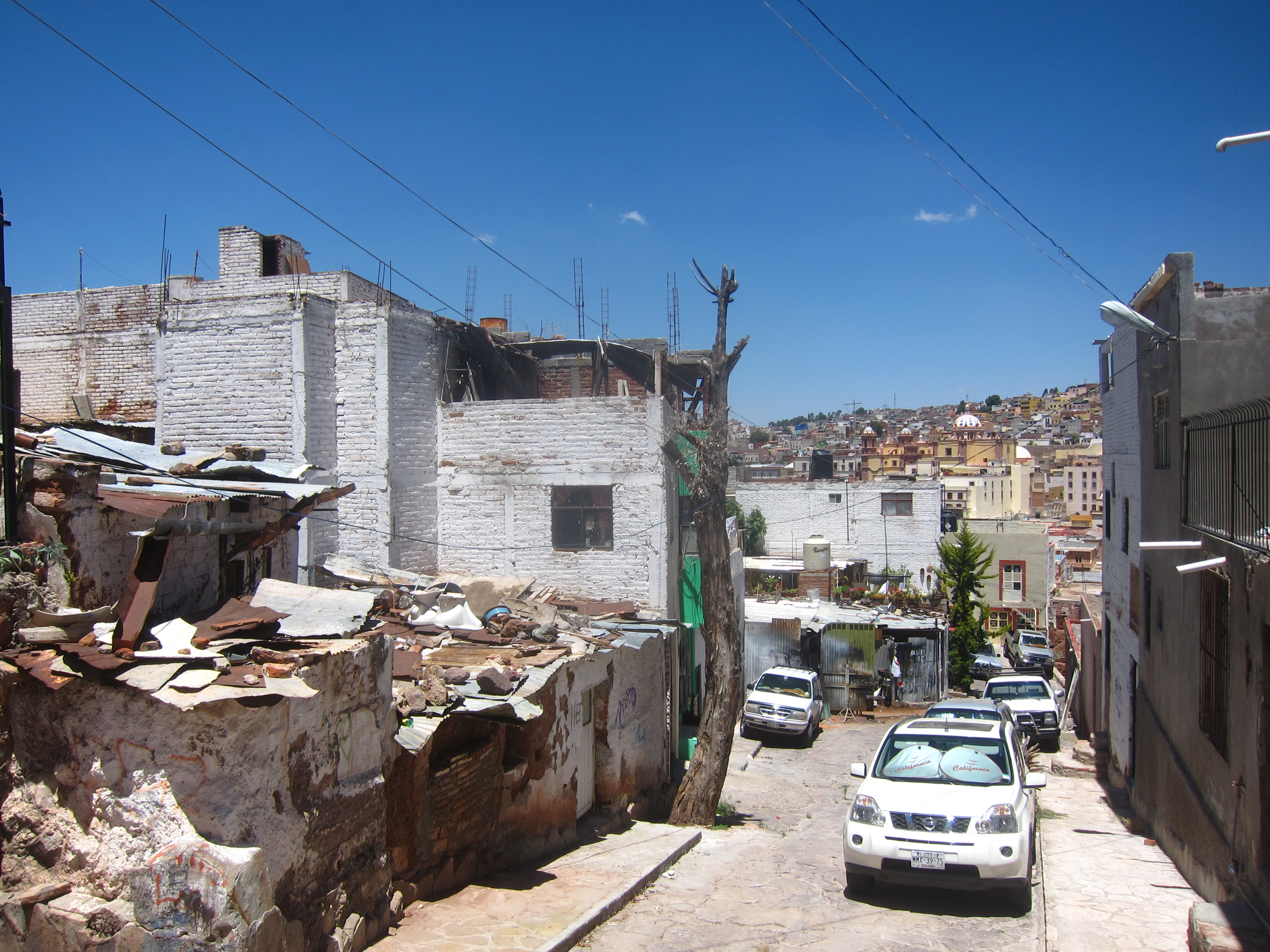
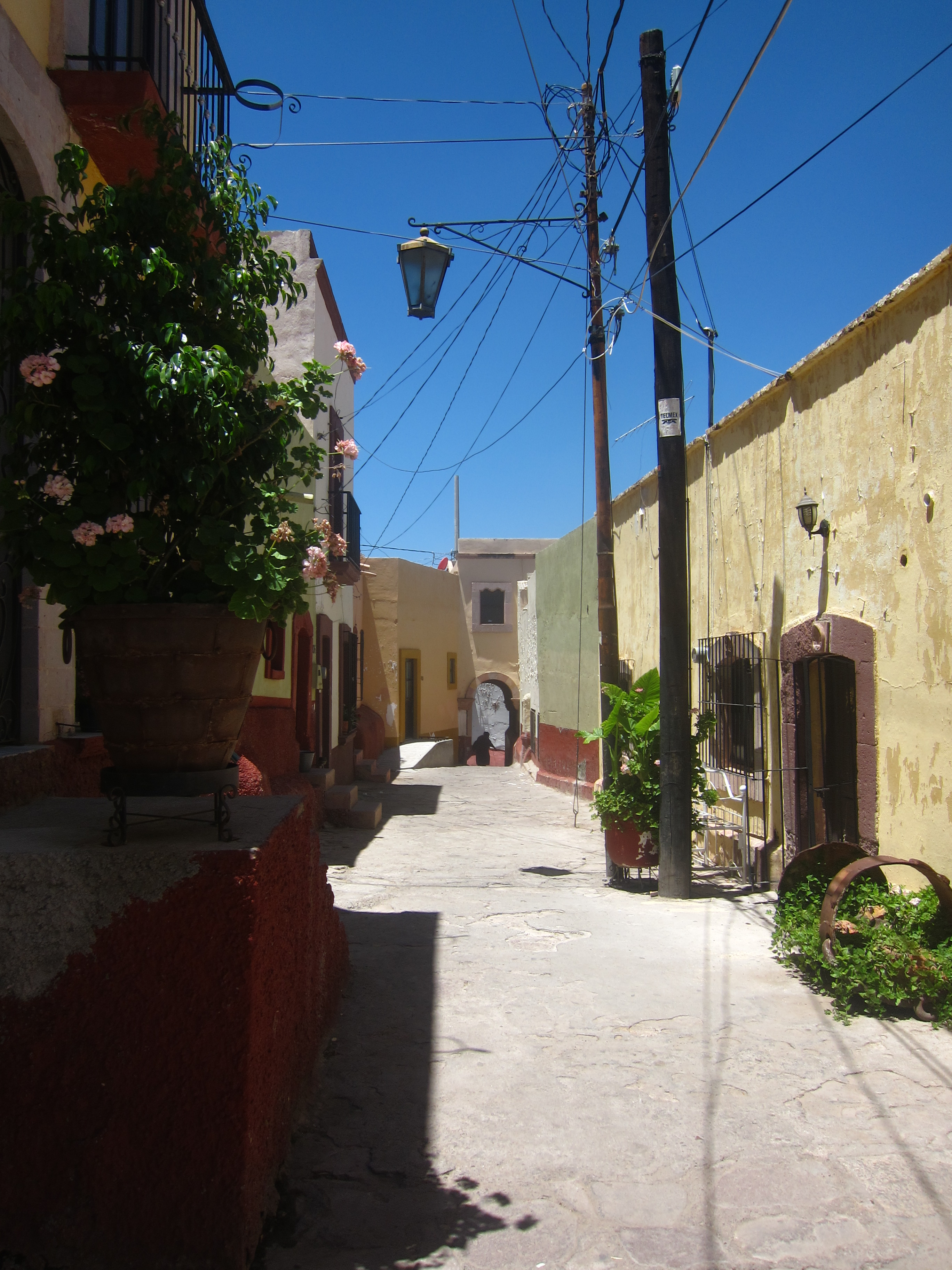
There was no university here, and so no college students filling the cafes and dawdling in the plazas between classes. I didn’t see many other American or European tourists, probably owing to the small bit of extra effort required to get here. It felt less like a postcard preserved in time and more like a place that people lived everyday and worked, or didn’t.
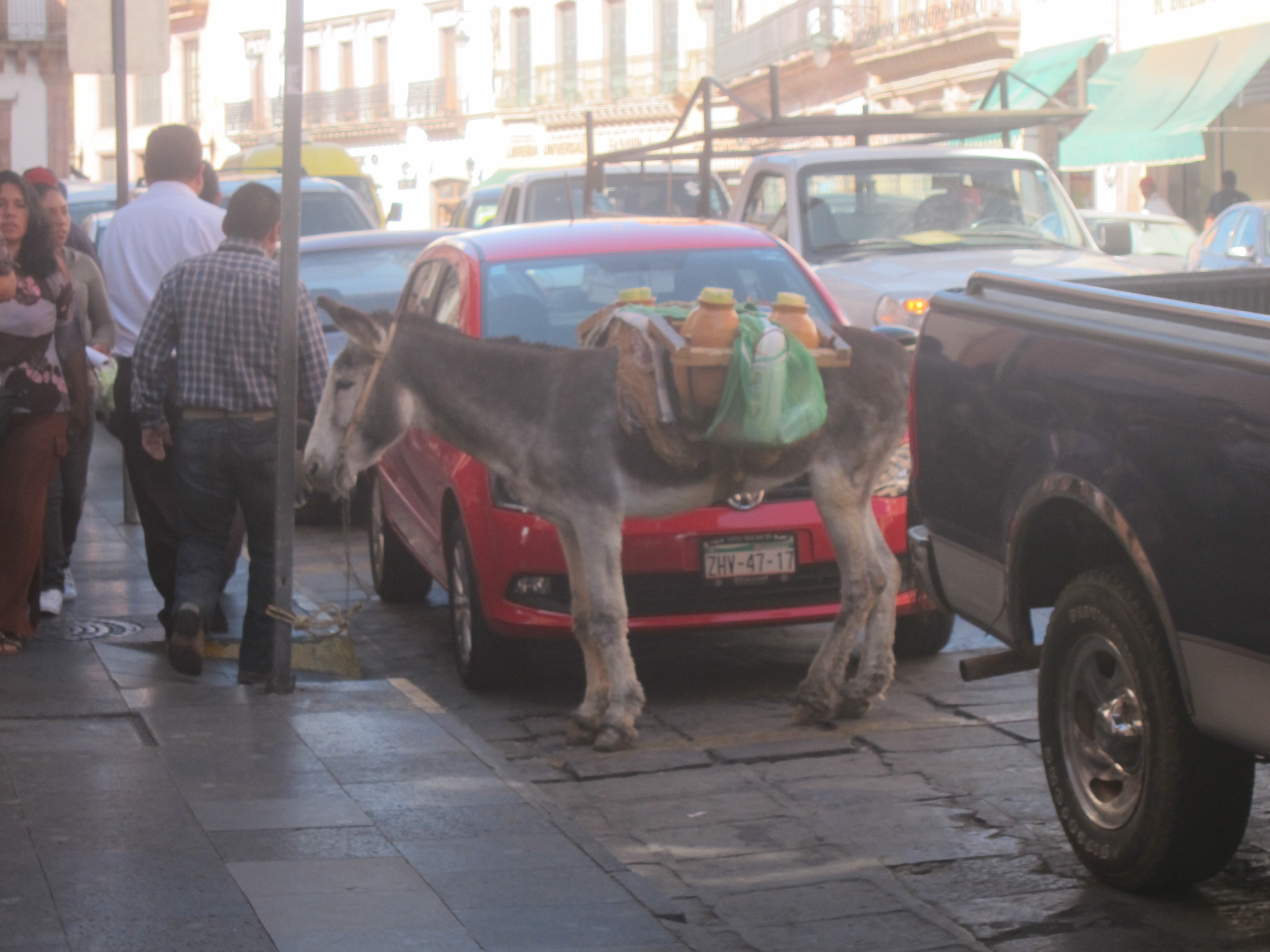
The streets didn’t twist as much as Guanajuato’s and there was always to massive cathedral there to reorient myself if I got lost. The plazas and parks were fewer, and less shaded, and the sun was hot.

I climbed up Cerro la Bufa,
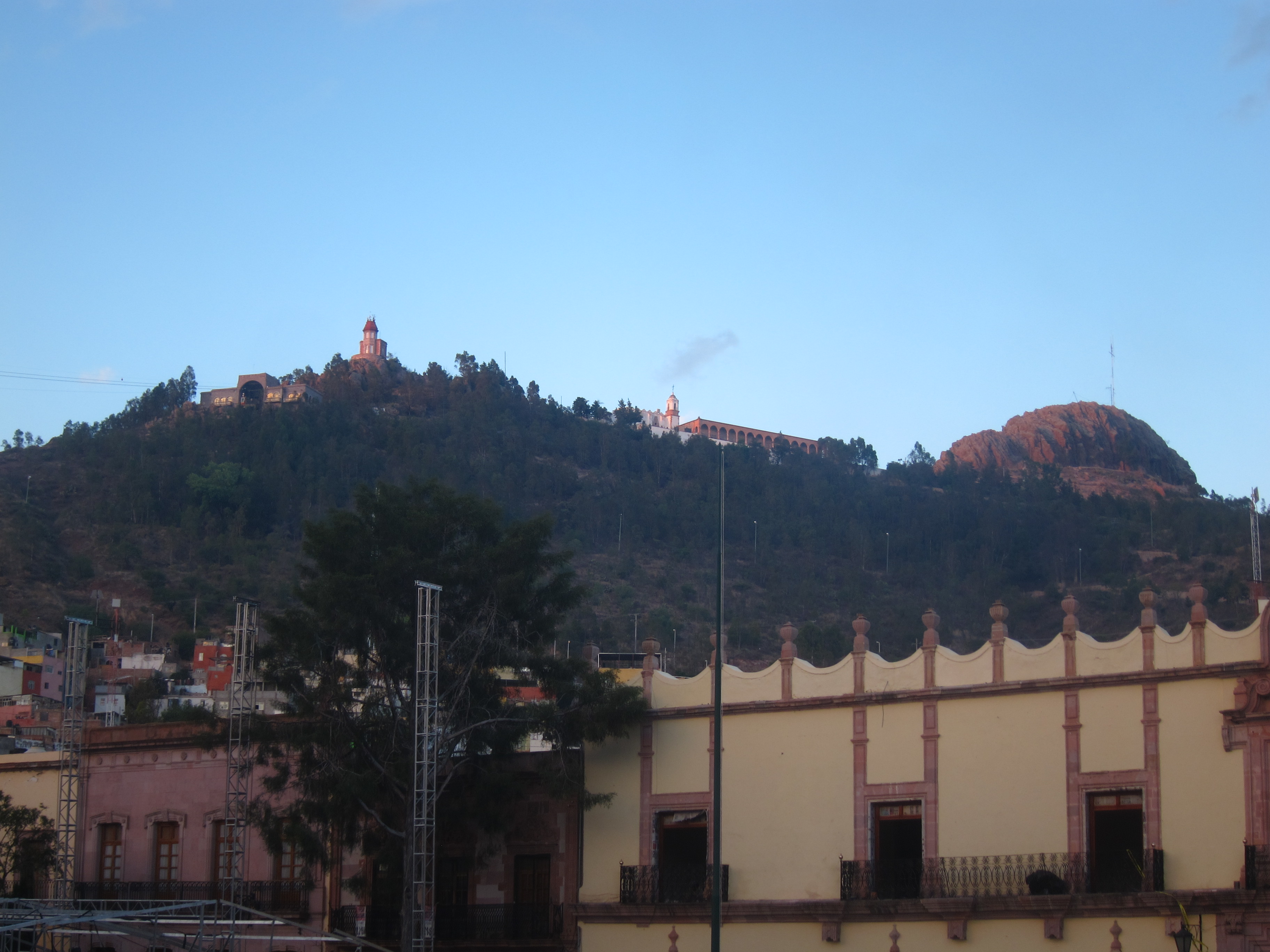
skipping the teleferico, which cost $4 each way and would not have been kind to my fear of heights.
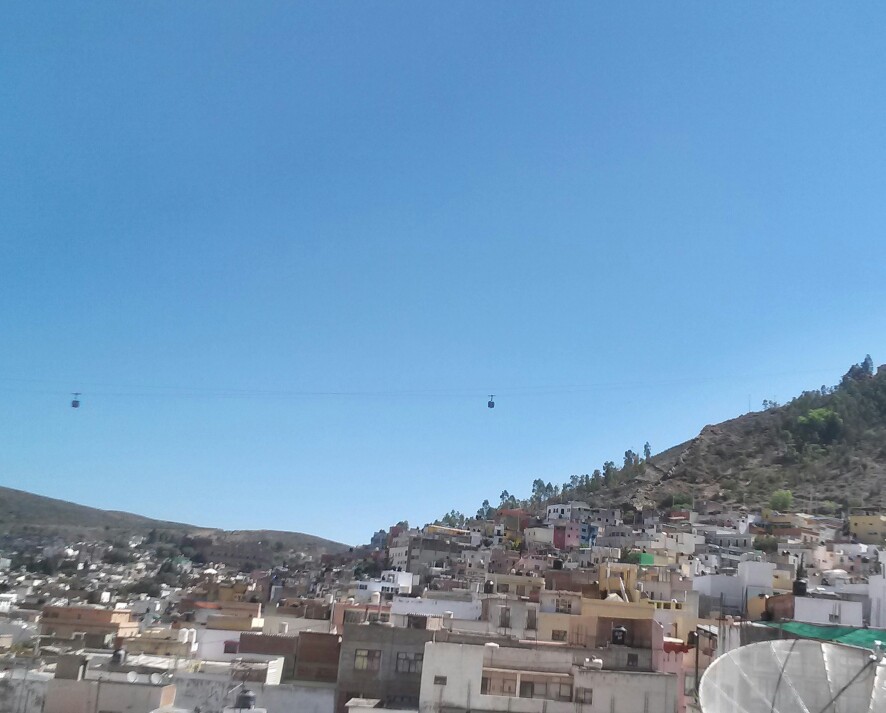
And I needed the exercise, long hours immobile on buses and lots of Mexican food causing me to start feeling my waist pushing against my beltline.
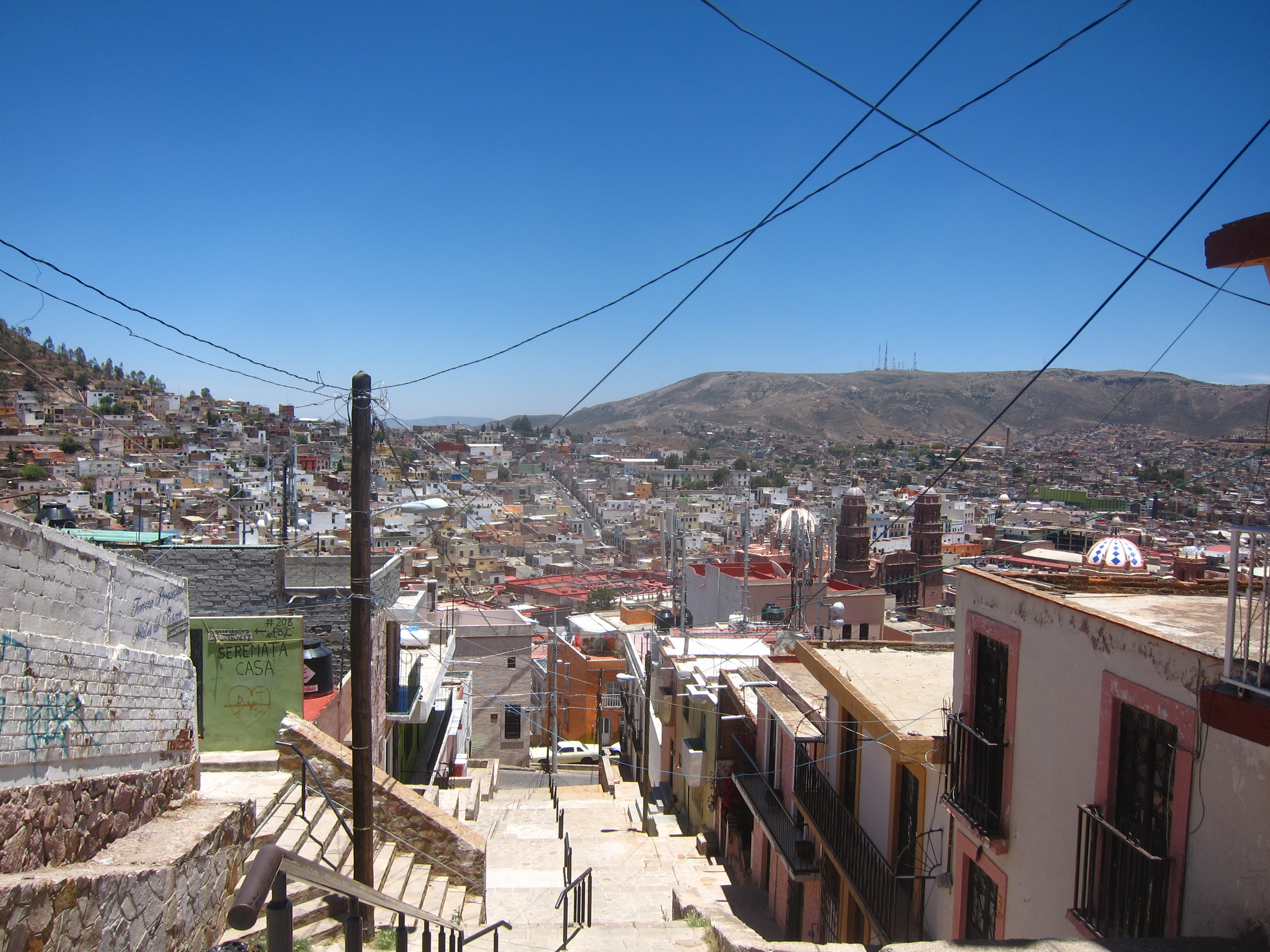
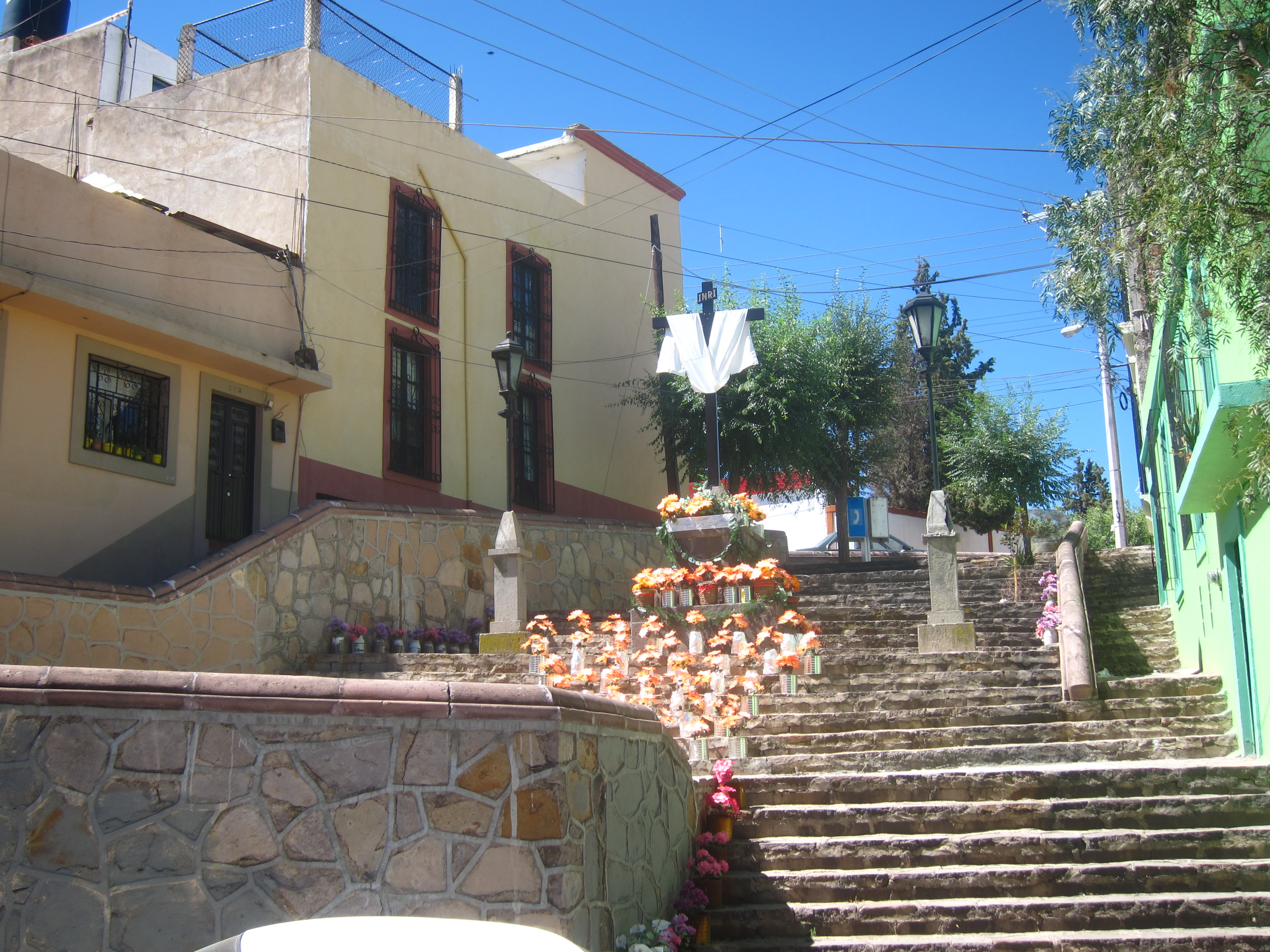
At the top, a breeze cooled and carried the sound of a train whistle from someplace I couldn’t locate.
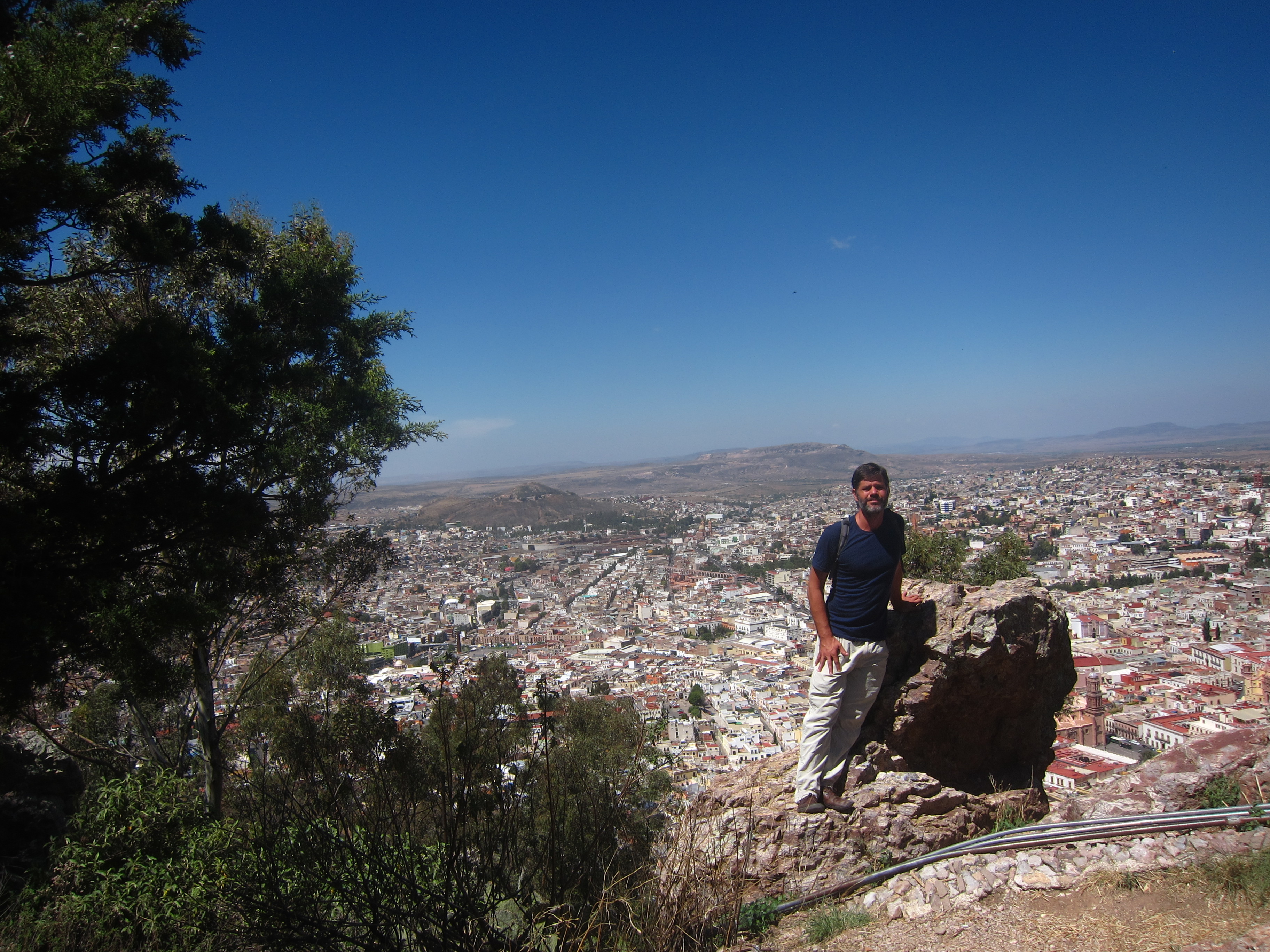

In a couple days, I would be riding El Chepe, the last passenger train in Mexico, from Chihuahua to Creel and then Los Mochis, near the Sea of Cortez, where I would cross by ferry to Baja California and begin the final sprint back to home, and the lonesome whistle made me wish I could take a train from here to Chihuahua as well, rather than a twelve hour overnight bus ride. The planning was almost over,
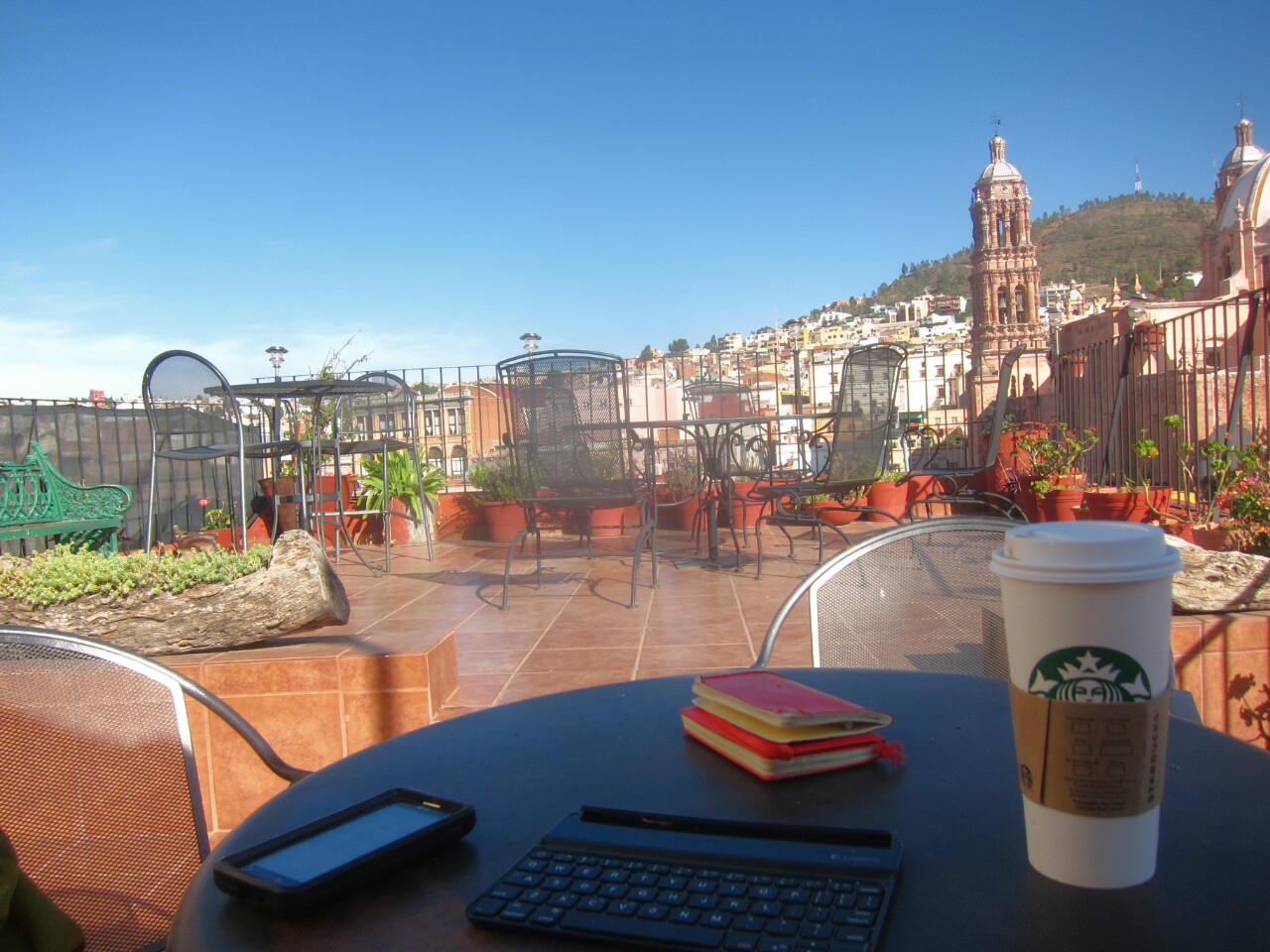
though the uncertainty of being unable to book my train and ferry tickets in advance was in the back of my mind. I had finally purchased my Amtrak ticket from Los Angeles to Chicago, so I had to been in LA on June 22, and I sat on the hotel terrace, drinking beer and running over alternative scenarios if the train or ferry was sold out.
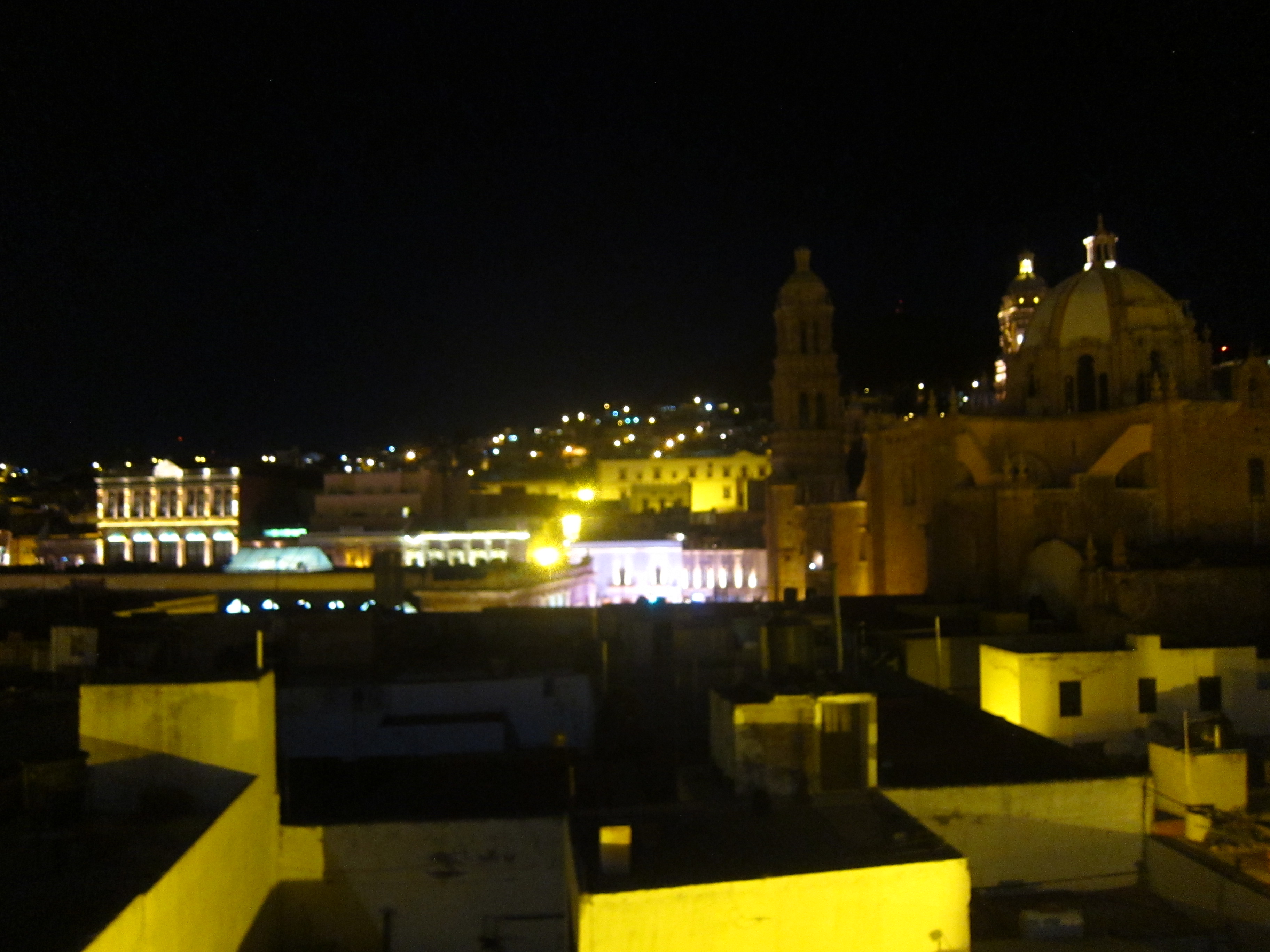
My last morning was the day of Mexico’s World Cup game against Cameroon.
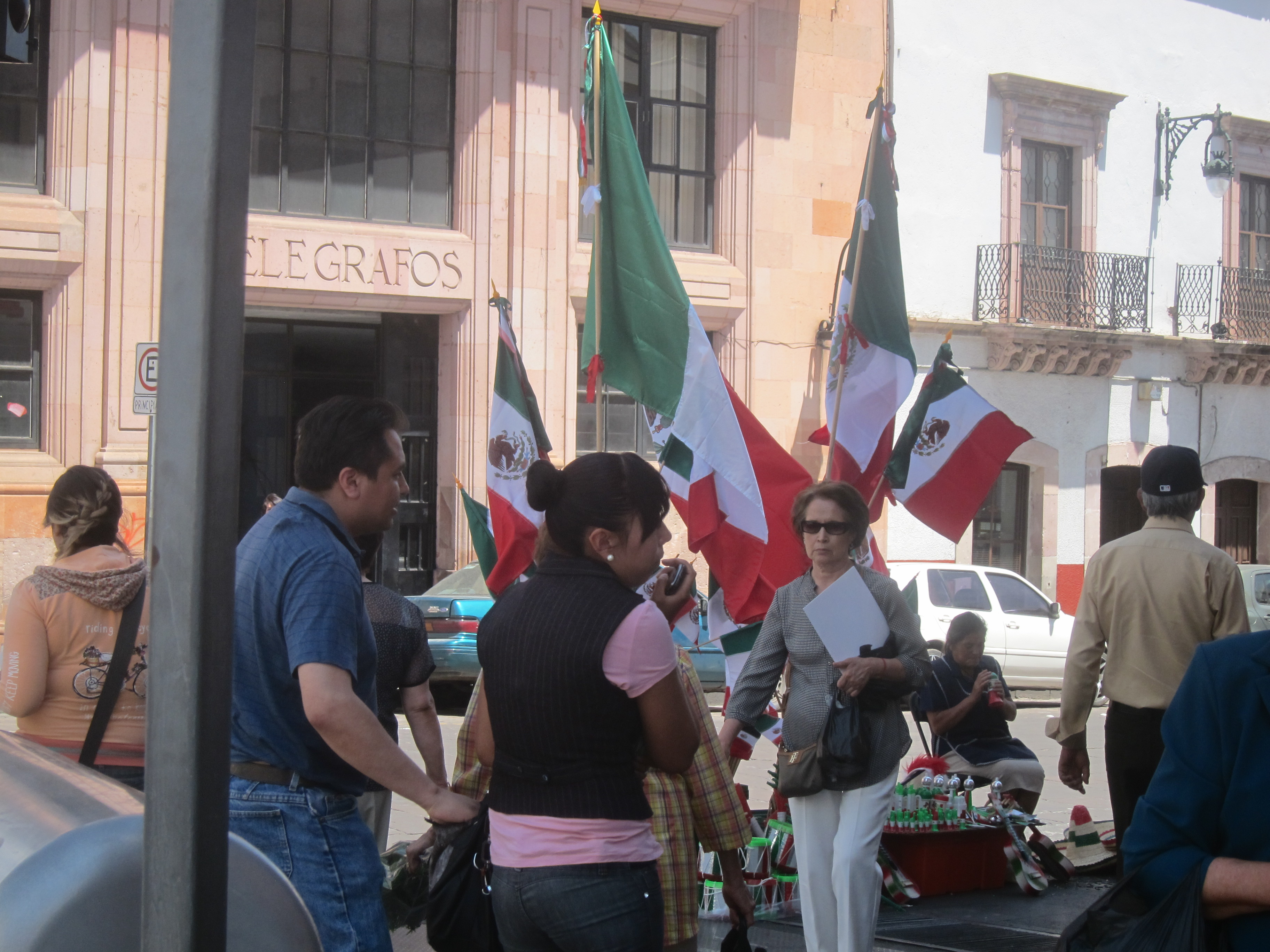
I could hear the shouts and groans from the bars and living rooms through the open balcony doors as I packed up. I walked the streets, hoping to find a bar with a seat, where I could take part, but they were all packed. The streets were full, people still had to work, some dressed in Mexico jersey’s, some who clearly didn’t care. I stood outside a small cantina and watched the tv with several others, just in time for Mexico to score it’s first goal. The bar erupted, and I could hear cheers from all directions, and booming fireworks going off. It was more fun to be on the streets, listening to the reactions to the ebb and flow of the game, than to be confined to one place.
I sat in the Jardin de Indepencia, waiting out the last hour before leaving for the bus station.
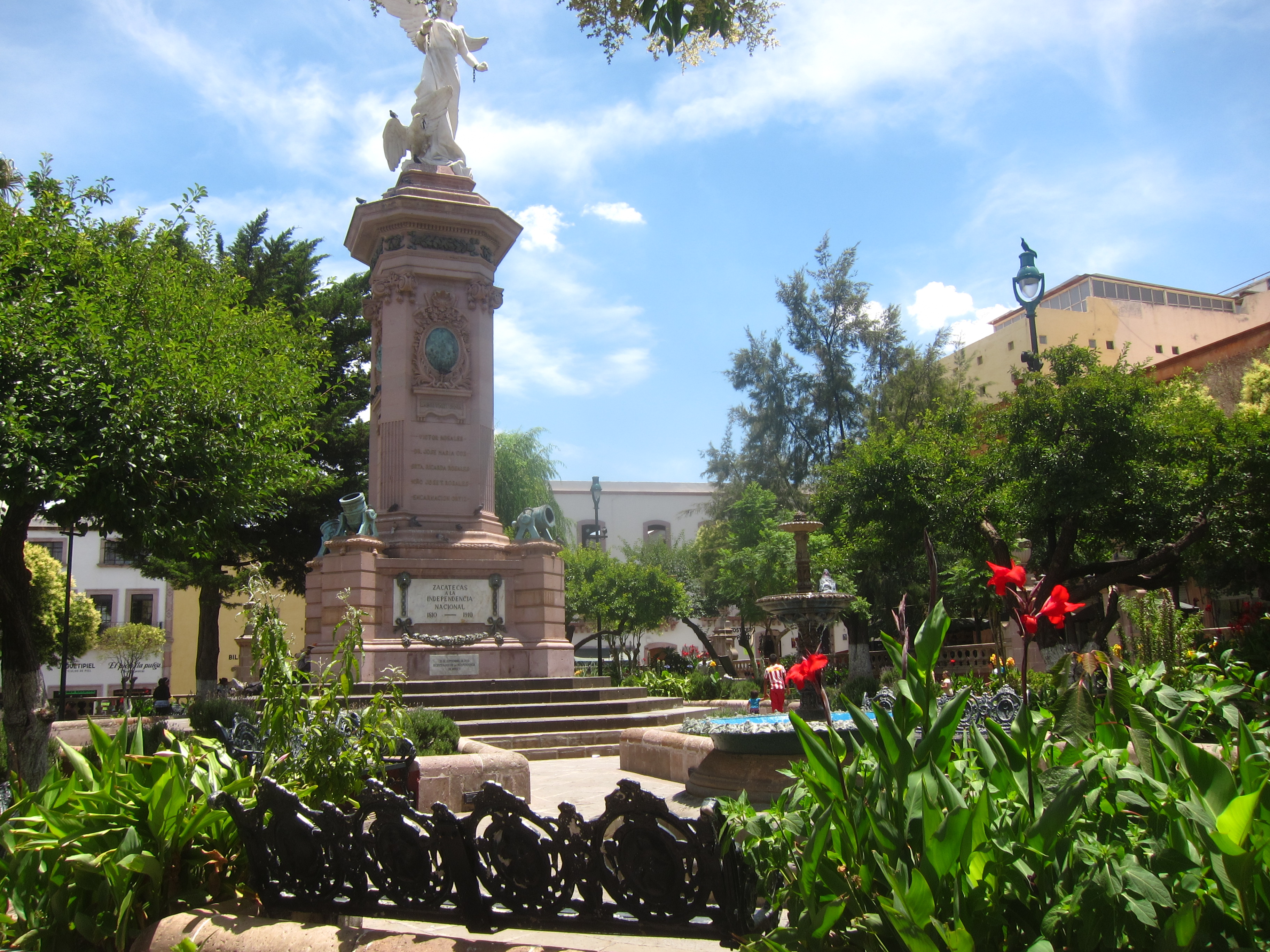
I watched a boy lift his sister so she could splash in the fountain, and my phone buzzed with a text from S. Her grandmother was ill, and she was going home to see how serious it was. I texted her back that I would be near Cabo San Lucas in four days, my best chance to get a flight home if it became necessary. I had just been thinking that I had been gone for three months, and would be back in just over two weeks, and that I was relieved nothing bad had happened, to me or anyone else, while I was away, and I felt like I jinxed something with the thought.
I bought a sandwich, soda and chips at the Oxxo to take with me to the bus station, picked up my bag at the hostel, and hailed a taxi. In thirteen hours, I would be at the train station in Chihuahua for the 6am departure, that much closer to home.
